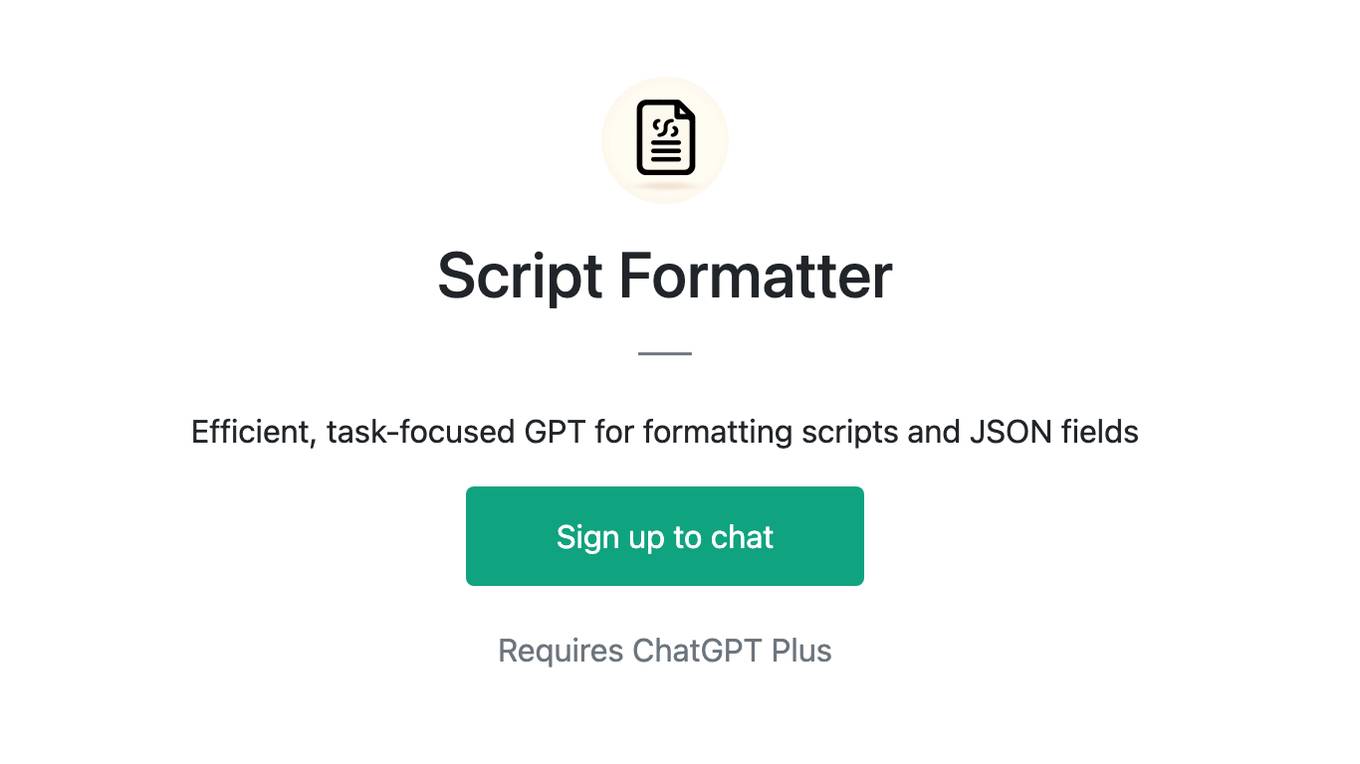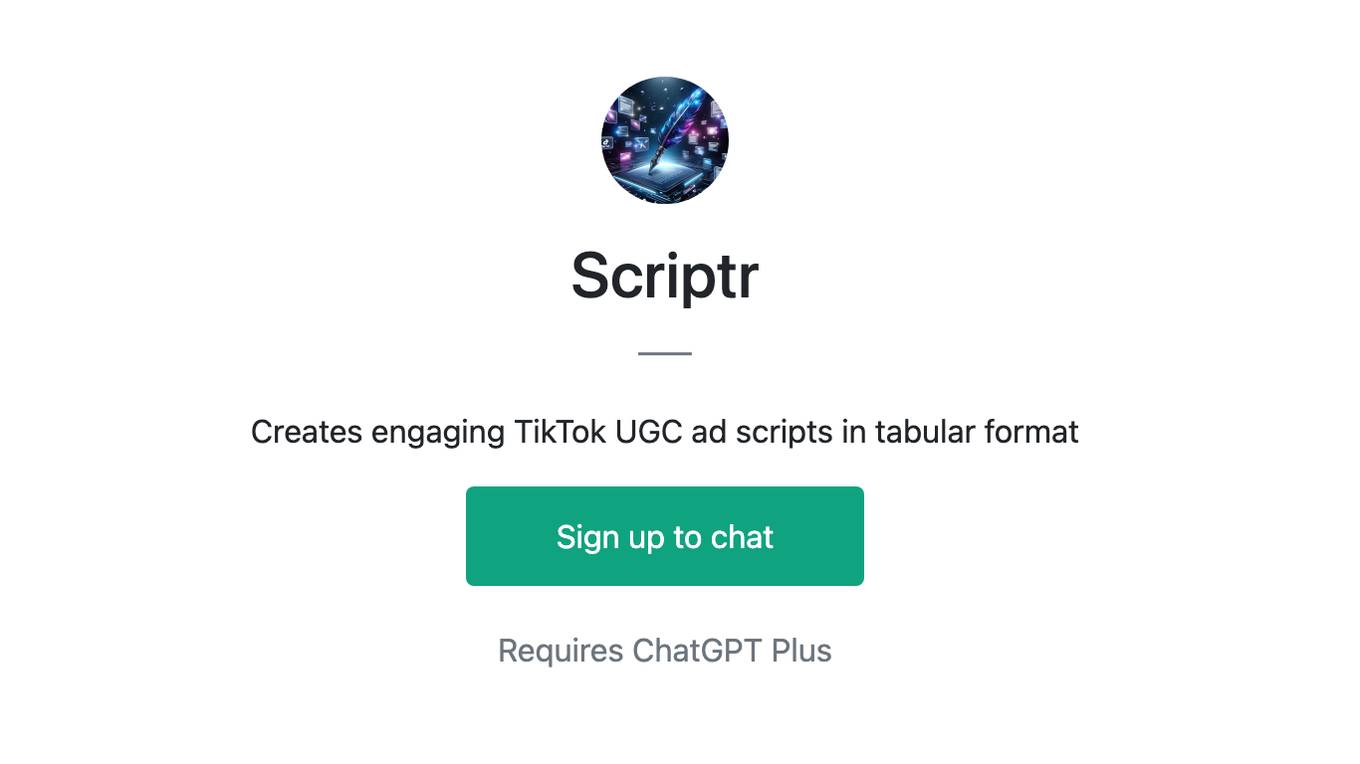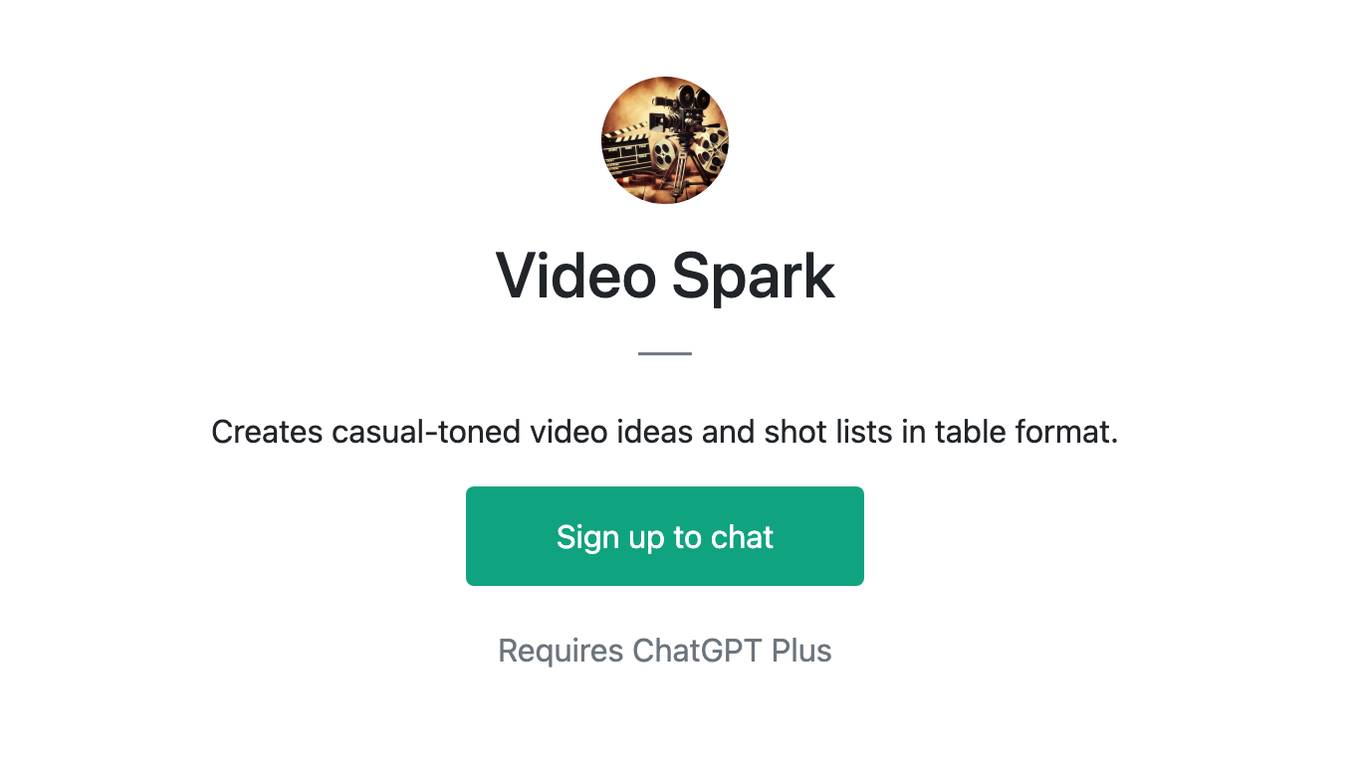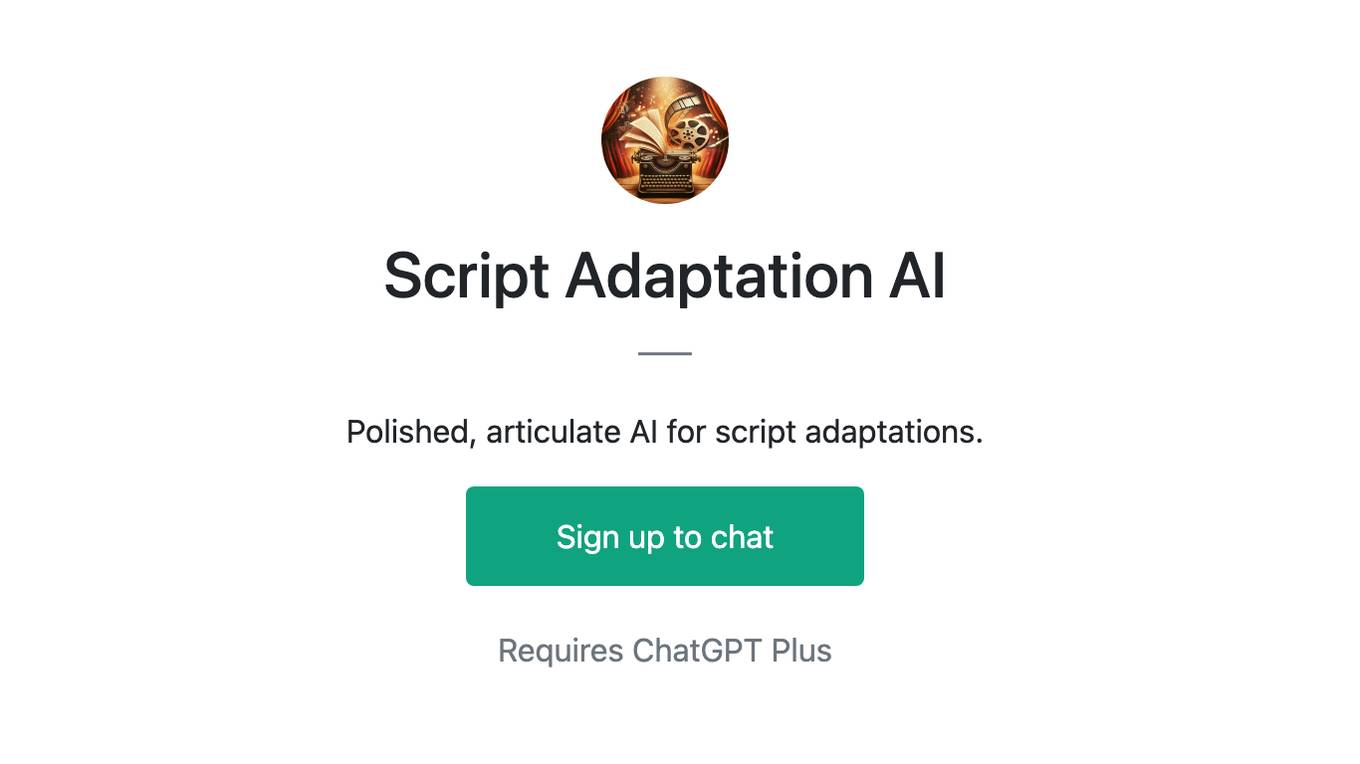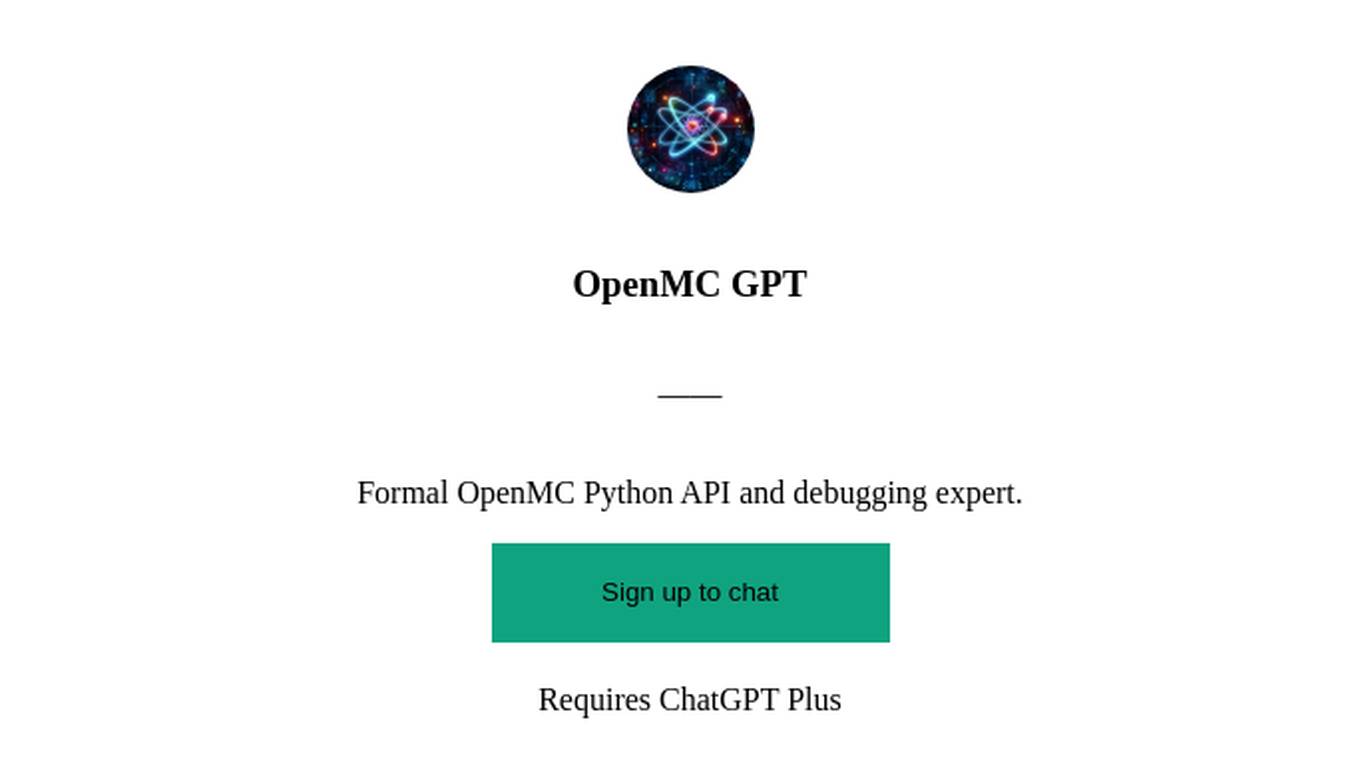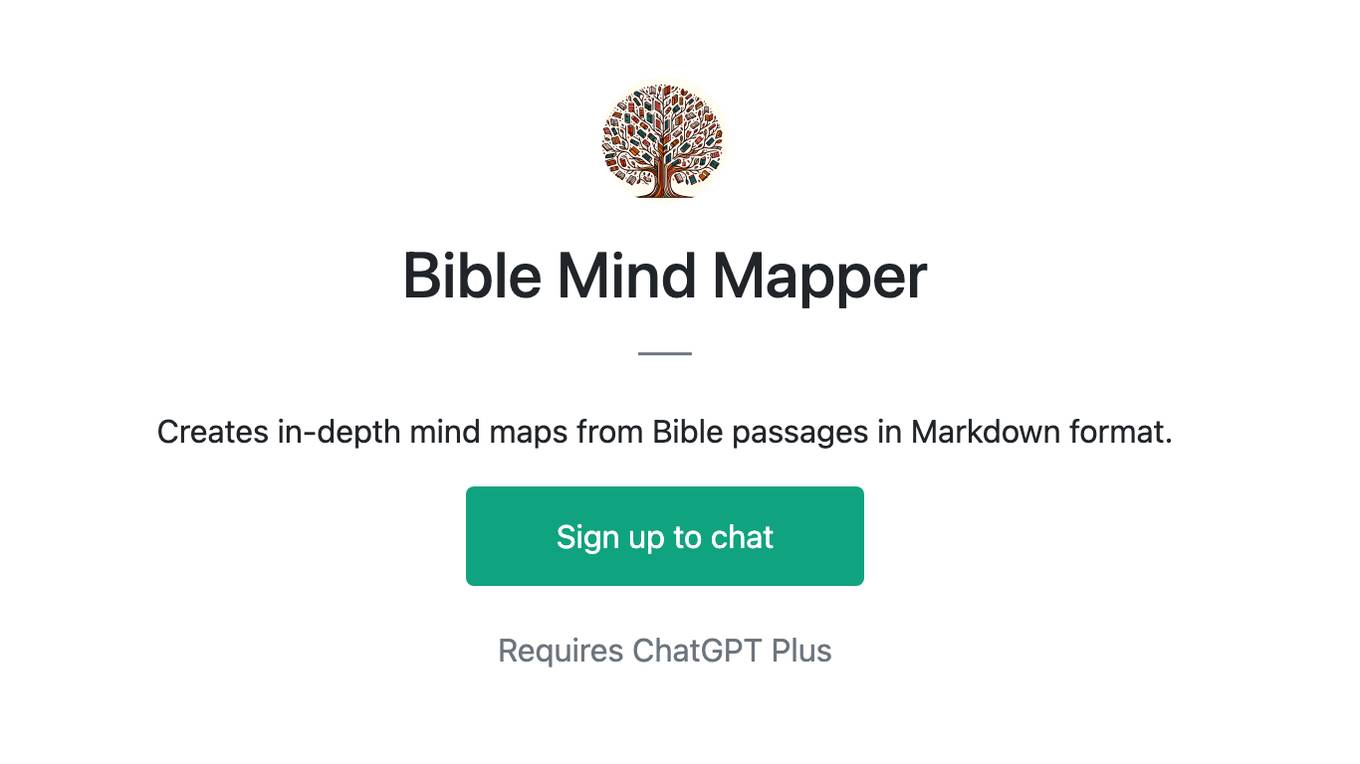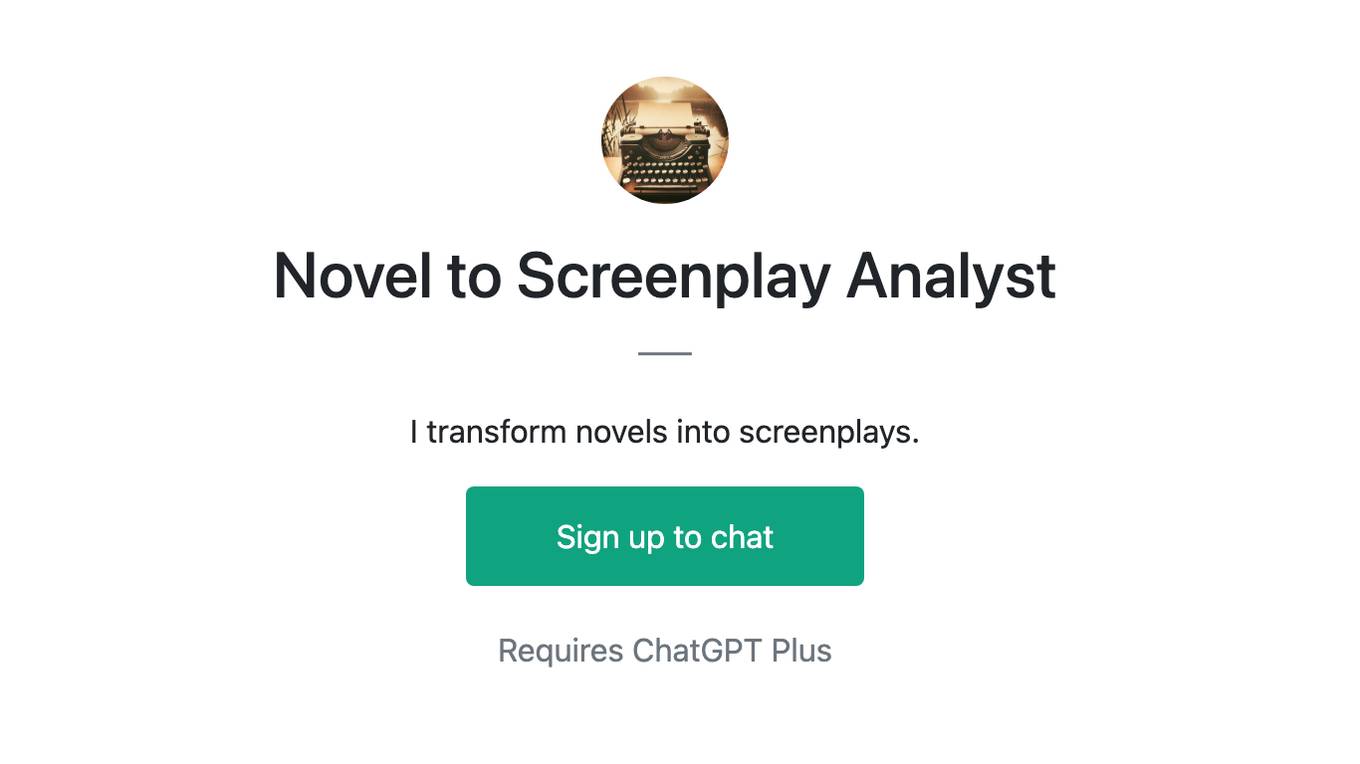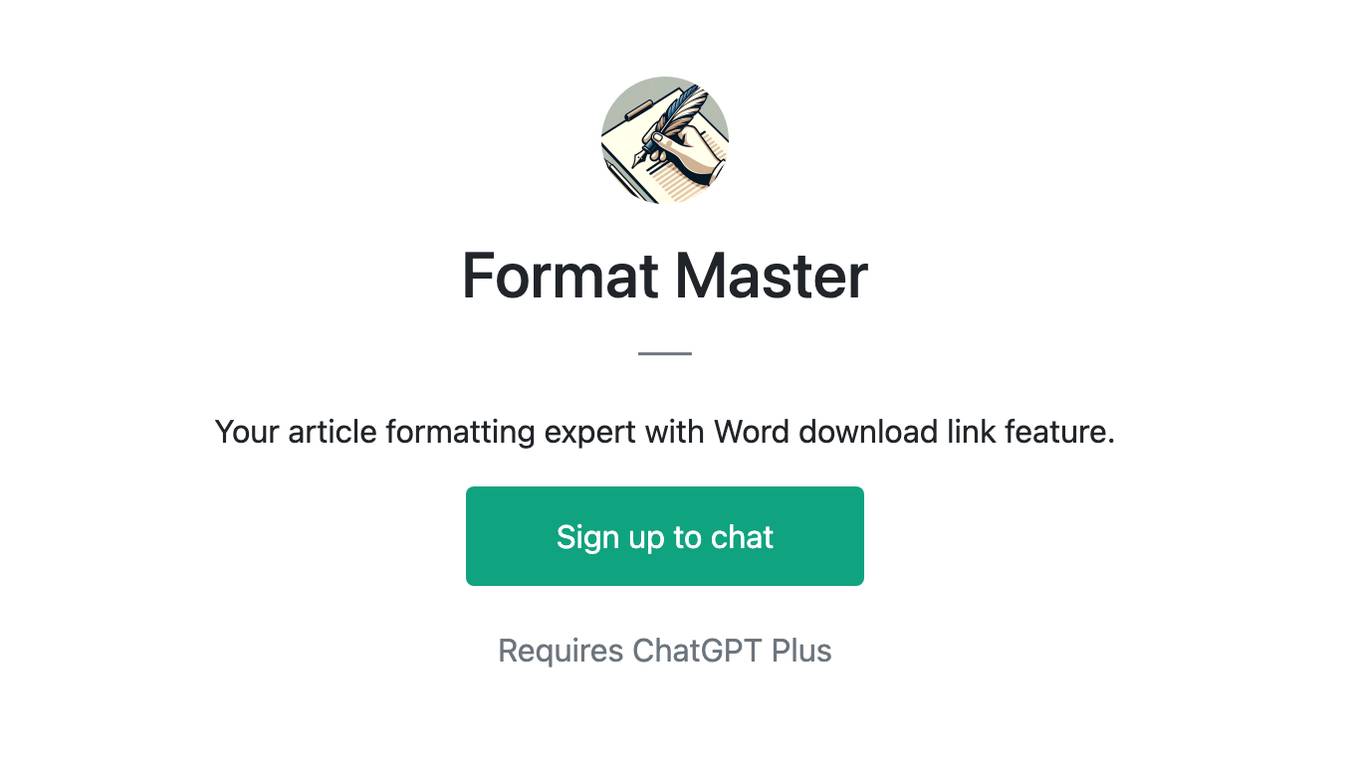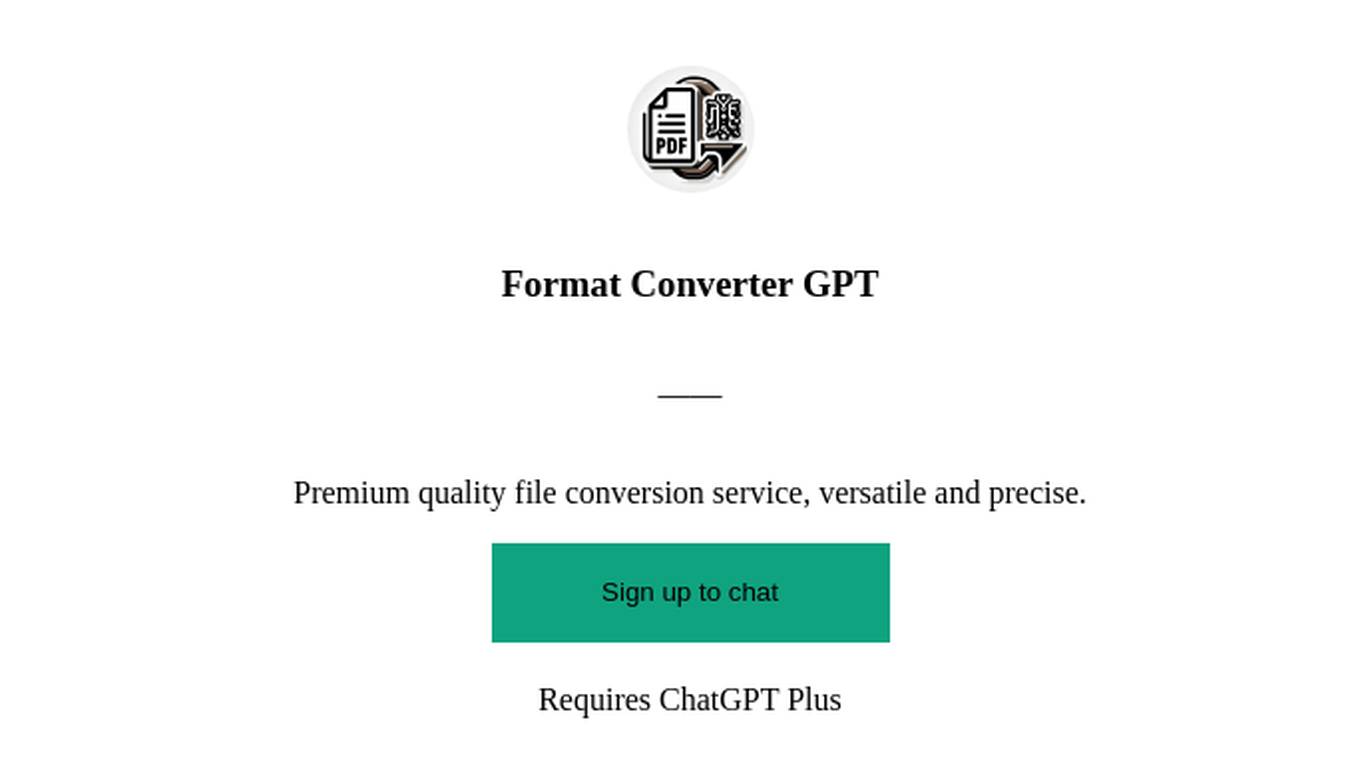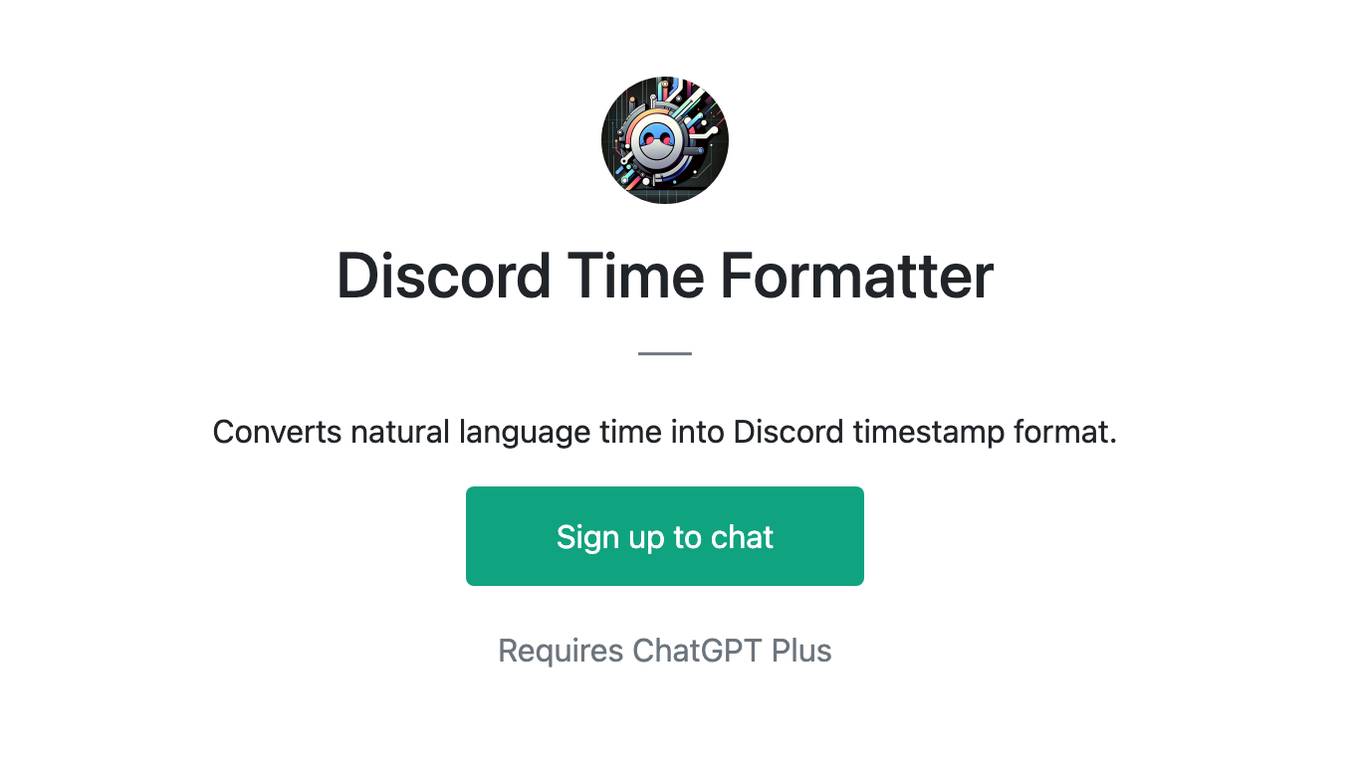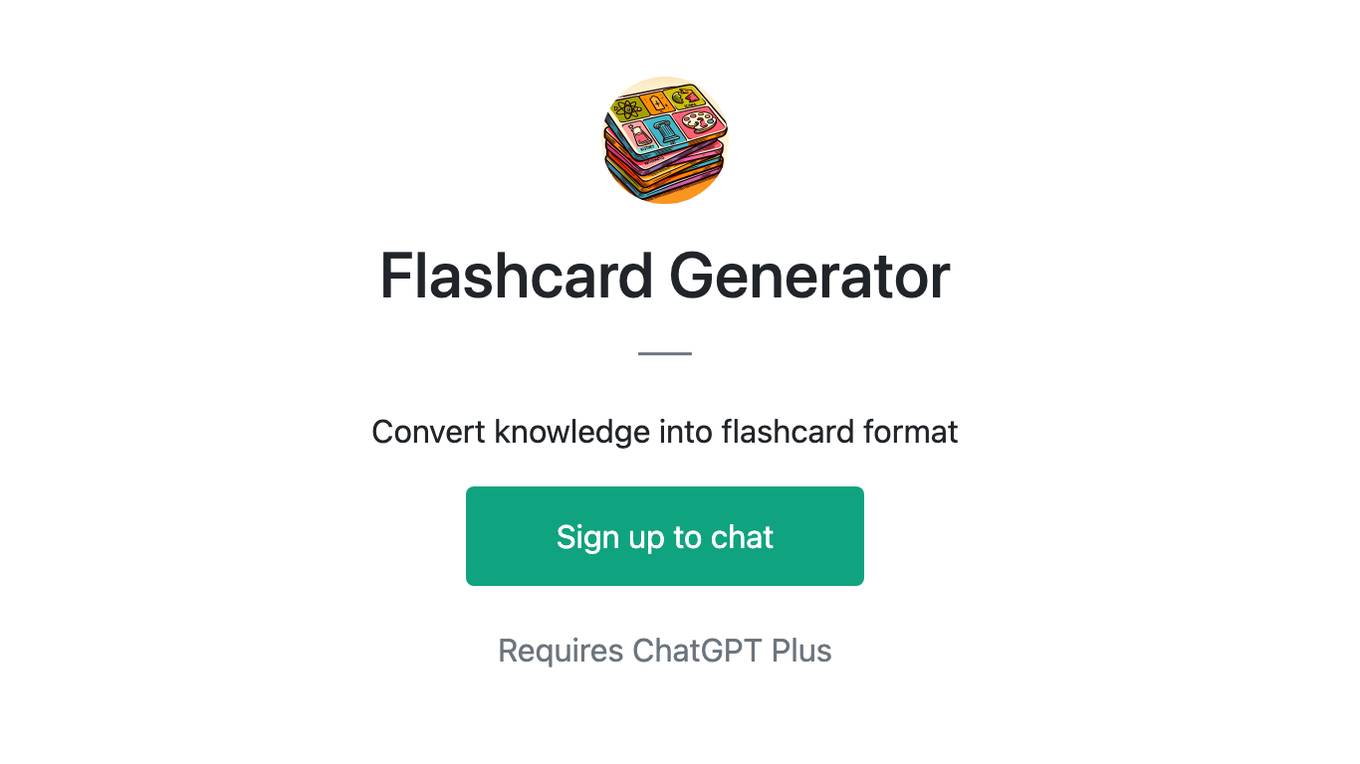Best AI tools for< Format Scripts >
20 - AI tool Sites

Bibit AI
Bibit AI is a real estate marketing AI designed to enhance the efficiency and effectiveness of real estate marketing and sales. It can help create listings, descriptions, and property content, and offers a host of other features. Bibit AI is the world's first AI for Real Estate. We are transforming the real estate industry by boosting efficiency and simplifying tasks like listing creation and content generation.
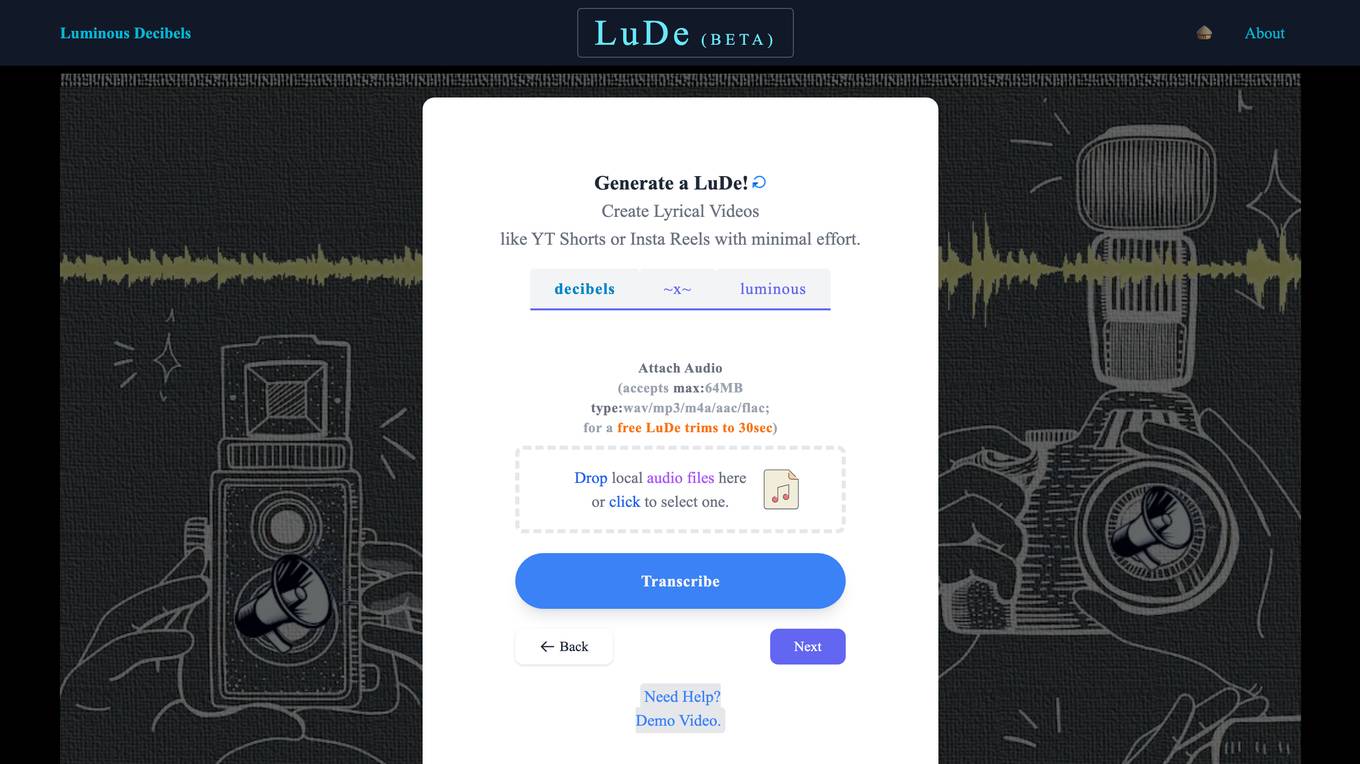
LuDe
LuDe is an AI-powered video creator application that allows users to generate lyrical videos like YouTube Shorts or Instagram Reels with minimal effort. Users can attach audio files in various formats and transcribe scripts to customize their videos. The application offers different video background options and requires users to 'Luminate' before the final video creation. LuDe leverages AI technology to create engaging video content based on the provided audio or text input.
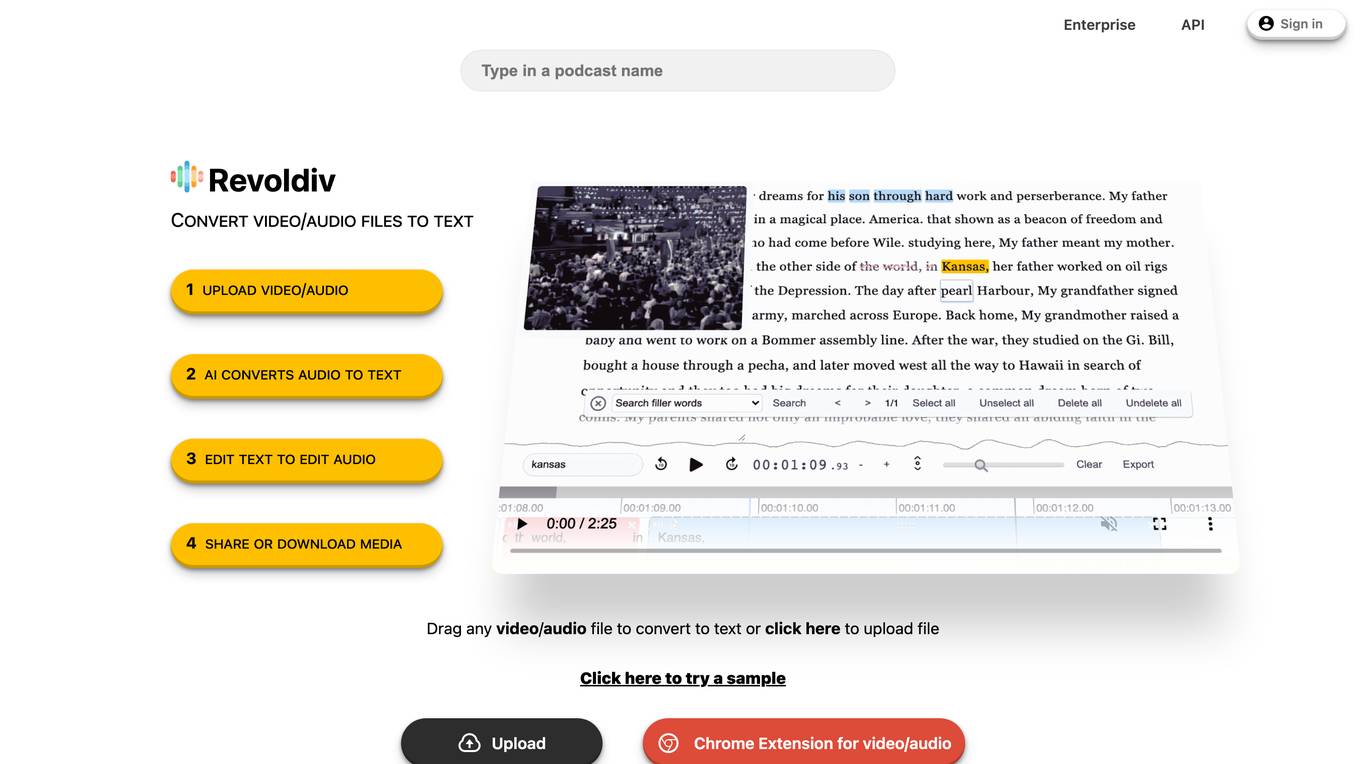
Revoldiv
Revoldiv is an online tool that allows users to convert video and audio files into text. It uses artificial intelligence to transcribe the audio, and users can then edit the text to remove filler words, create audiograms, and export the files in a variety of formats. Revoldiv is a valuable tool for anyone who needs to transcribe audio or video files, and it is easy to use and affordable.

AutoScript
AutoScript is an advanced AI-powered tool designed to automate the process of scriptwriting for videos, movies, and other multimedia content. By utilizing cutting-edge natural language processing algorithms, AutoScript can generate high-quality scripts quickly and efficiently. With its user-friendly interface, content creators can easily input their requirements and receive well-crafted scripts tailored to their needs. Whether you are a filmmaker, YouTuber, or content creator, AutoScript streamlines the scriptwriting process, saving you time and effort.
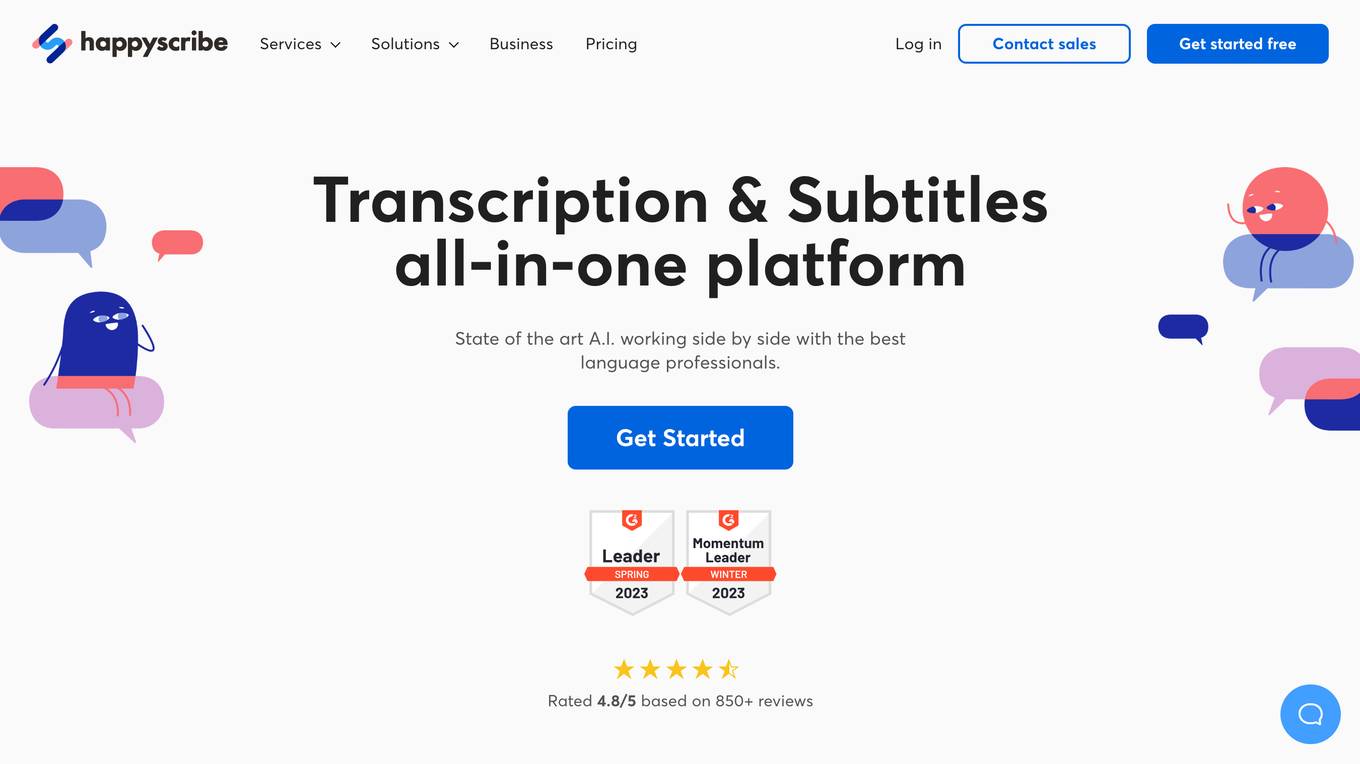
HappyScribe
HappyScribe is an AI transcription tool that converts audio and video files into text with high accuracy. It offers a seamless and efficient way to transcribe various types of content, saving time and effort for users. The tool is equipped with advanced AI technology to ensure precise transcription results. HappyScribe is trusted by professionals, students, and content creators for its reliability and user-friendly interface.

OpenResty
The website is currently displaying a '403 Forbidden' error message, which indicates that the server is refusing to respond to the request. This error is often caused by insufficient permissions or misconfiguration on the server side. The 'openresty' mentioned in the message is a web platform based on NGINX and LuaJIT, commonly used for building high-performance web applications. It is designed to handle a large number of concurrent connections and provide a scalable and efficient web server solution.
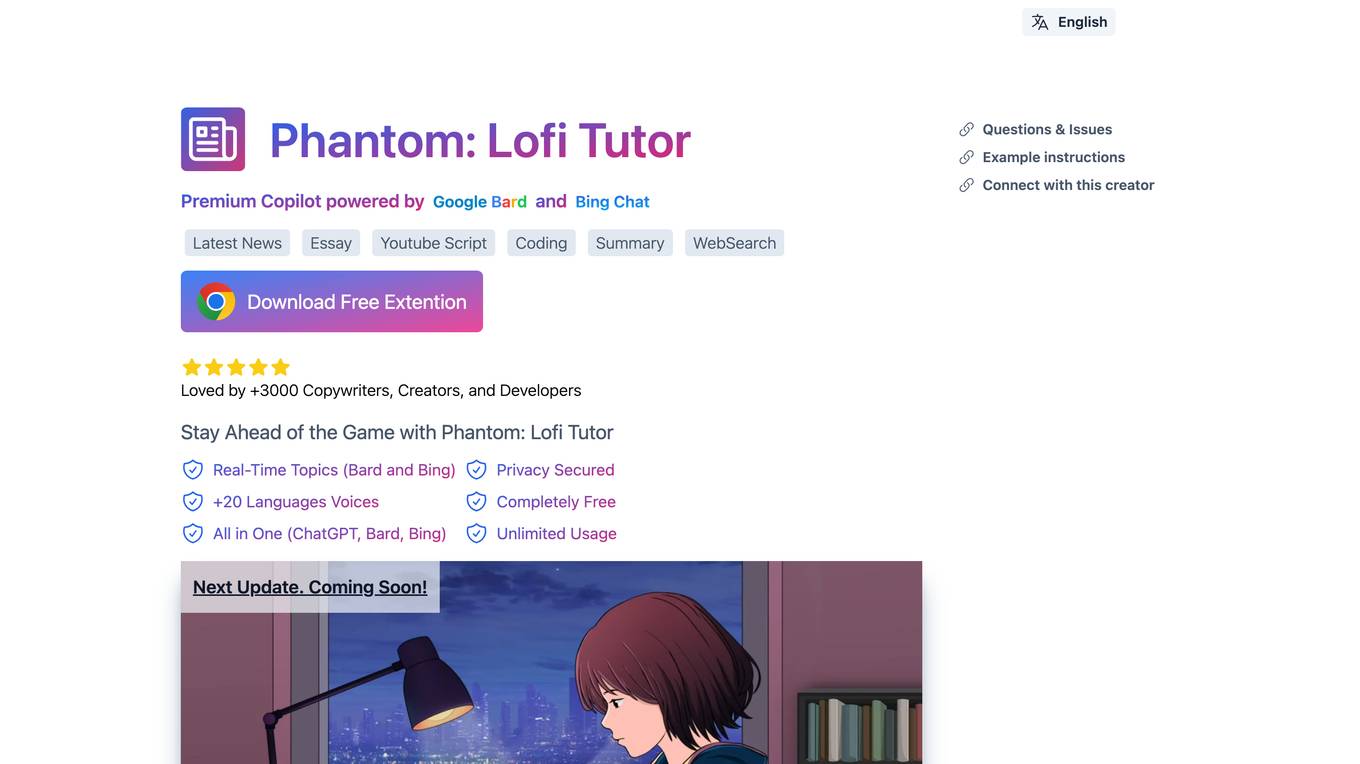
Phantom: Lofi Tutor
Phantom: Lofi Tutor is an AI-powered application designed to assist users in generating customized news articles and video scripts quickly and efficiently. It utilizes cutting-edge technology to analyze real-time data and create engaging content on various topics, including politics, sports, and entertainment. The app aims to help users stay ahead of the game by providing script templates for popular video formats, such as tutorials, product demonstrations, and vlogs. With a focus on privacy and user experience, Phantom: Lofi Tutor offers unlimited usage and is completely free of ads, analytics, trackers, and cookies.
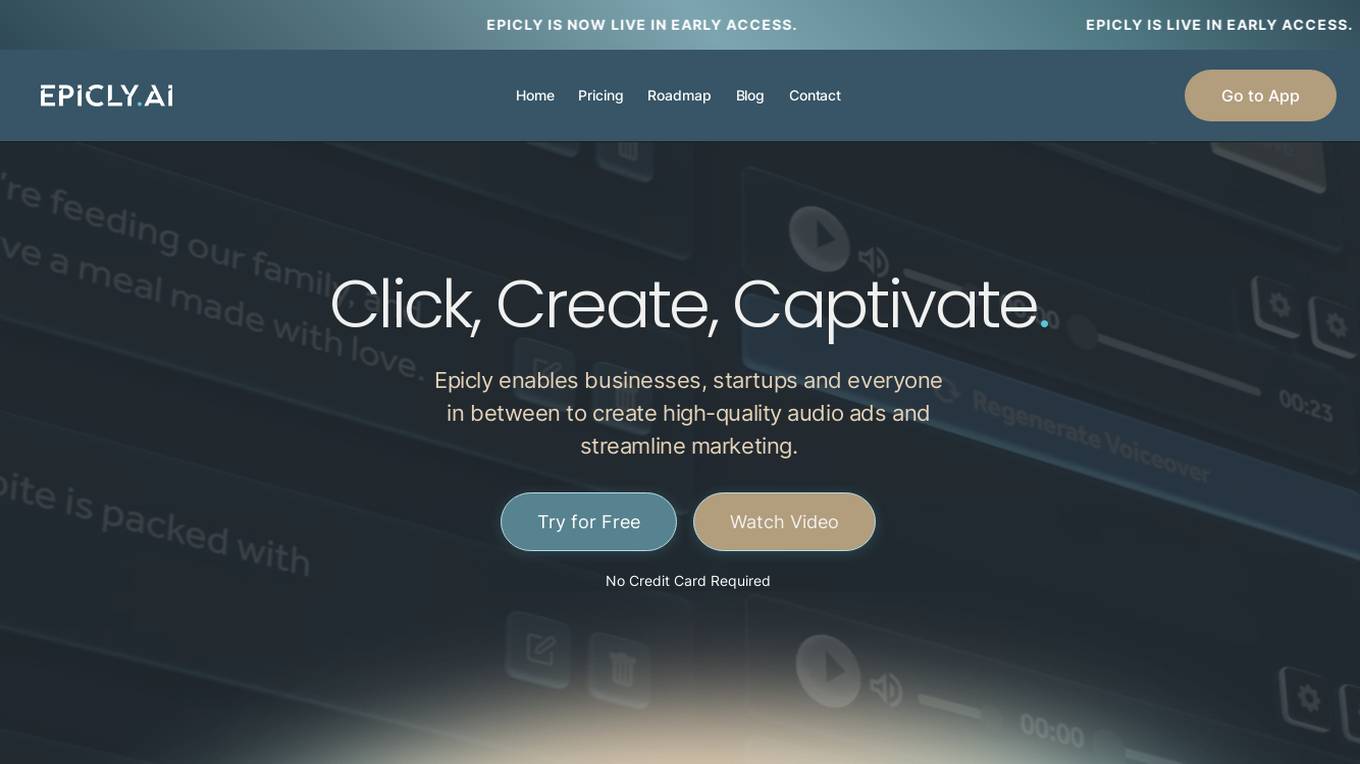
Epicly.ai
Epicly.ai is an AI-powered tool designed to help businesses, startups, and individuals create high-quality audio ads with unprecedented speed. The tool features a simple guided process for ideation, script structuring, voiceover generation, and script editing. It eliminates the need for manual scriptwriting by providing flexible exports to various file formats. With an intuitive AI scriptwriting interface and a range of built-in voices, Epicly.ai streamlines the content creation process for marketing professionals, small business owners, and startup founders.
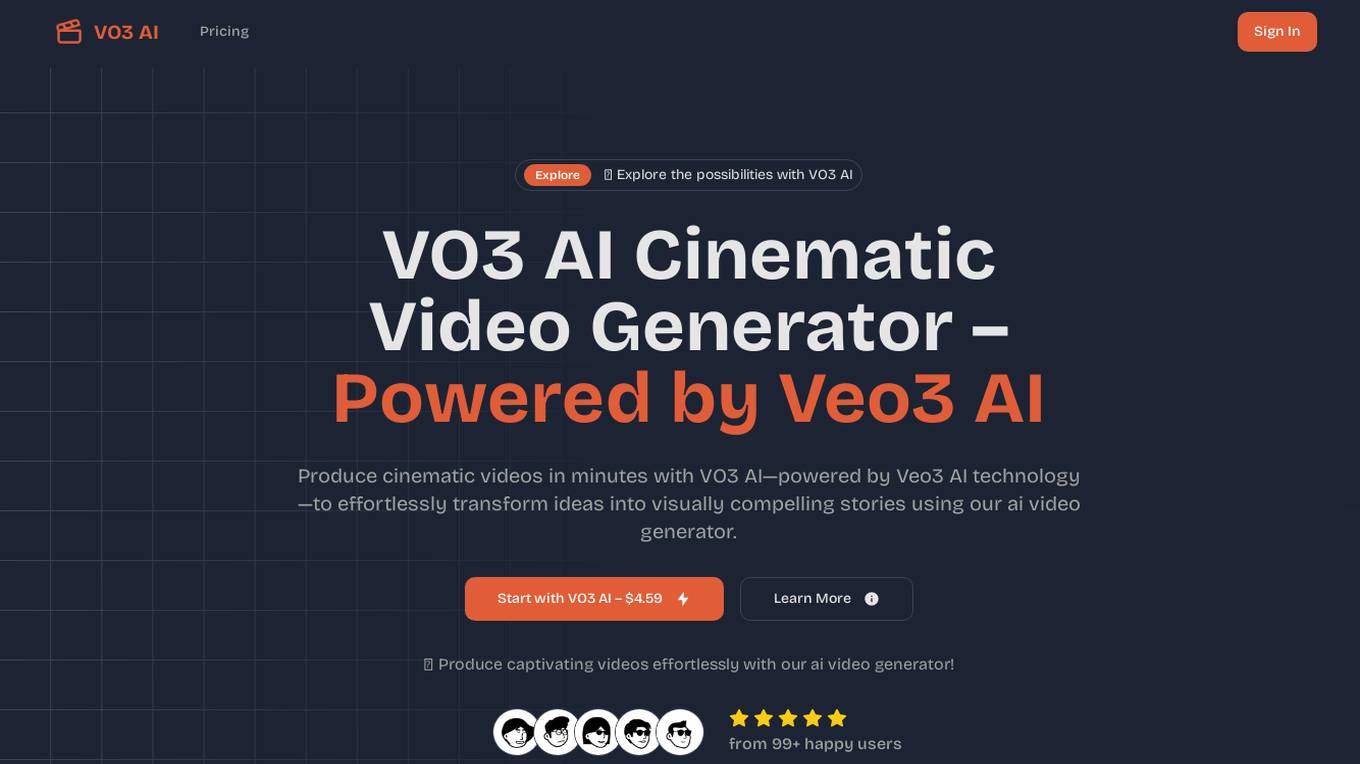
VO3 AI
VO3 AI is an innovative AI video generator powered by Veo3 AI technology. It transforms scripts, ideas, or prompts into immersive videos with high-fidelity motion and storytelling. Users can create cinematic videos in minutes, customize visuals, and download finished clips in popular formats. The platform offers advanced features like high-fidelity visuals, multi-style rendering, dynamic scene understanding, and fine-grained controls. VO3 AI caters to various industries such as marketing, education, and entertainment, providing a user-centric interface for both creatives and non-technical users.
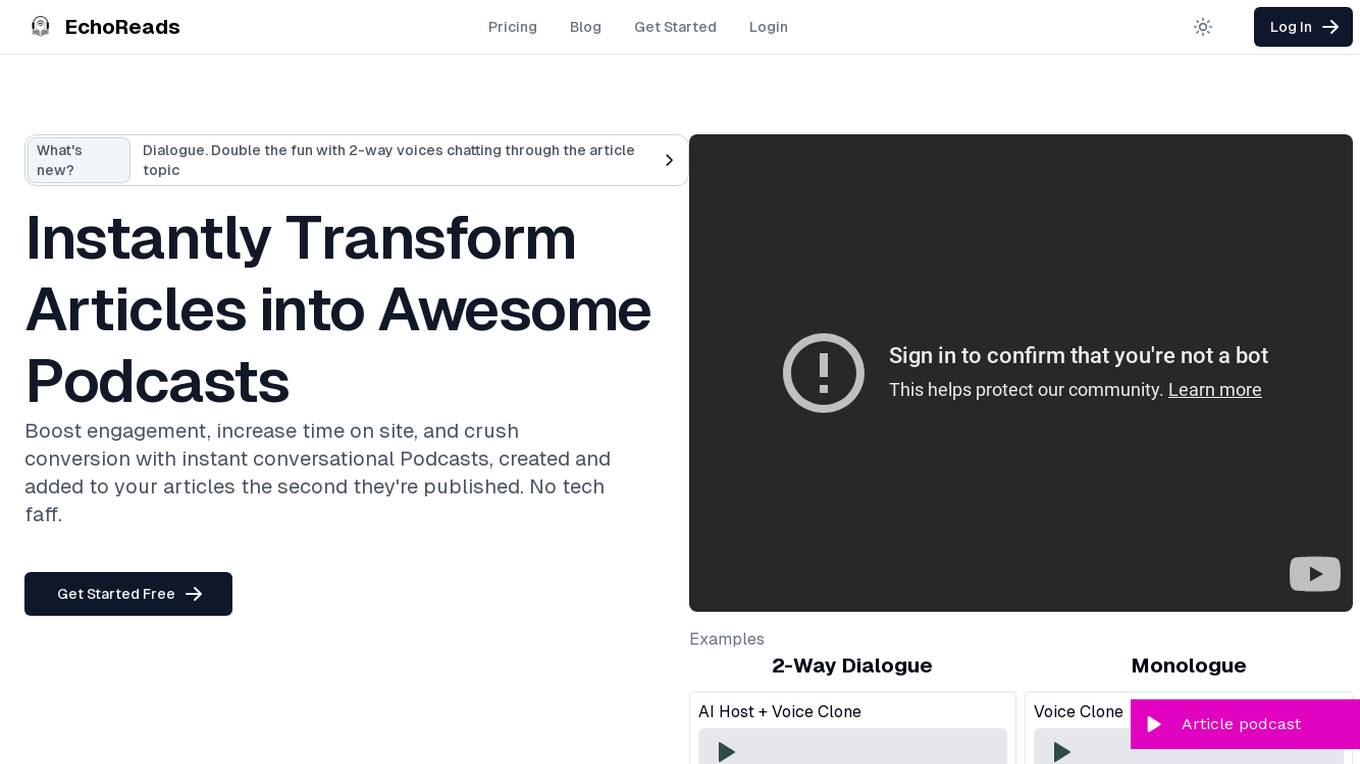
EchoReads
EchoReads is an AI-powered tool that transforms blog articles into engaging podcasts instantly. It offers a seamless way to convert text content into audio format, enhancing user engagement and boosting organic traffic. With a diverse selection of lifelike voices and customizable audio players, EchoReads revolutionizes content repurposing for creators and marketers. The tool automates the creation of conversational podcasts, allowing users to be the voice behind their brand without the need for scripting or editing. By leveraging AI technology, EchoReads provides a user-friendly solution for podcast creation and integration, making it a valuable asset for content creators looking to enhance their online presence and reach a wider audience.

Viralshort
Viralshort is an AI-powered video generation platform that simplifies the process of creating TikTok and Youtube Shorts. Users can effortlessly create engaging short videos by providing a single prompt, allowing the AI to handle script creation, visual selection, and video production. With features like text-to-video conversion, audio and image regeneration, and an extensive music library, Viralshort enables users to generate high-quality videos quickly and easily. The platform also offers lightning-fast video creation, outpacing competitors and helping users achieve viral success faster. Despite its advantages, Viralshort may have limitations in terms of customization options and video format restrictions.
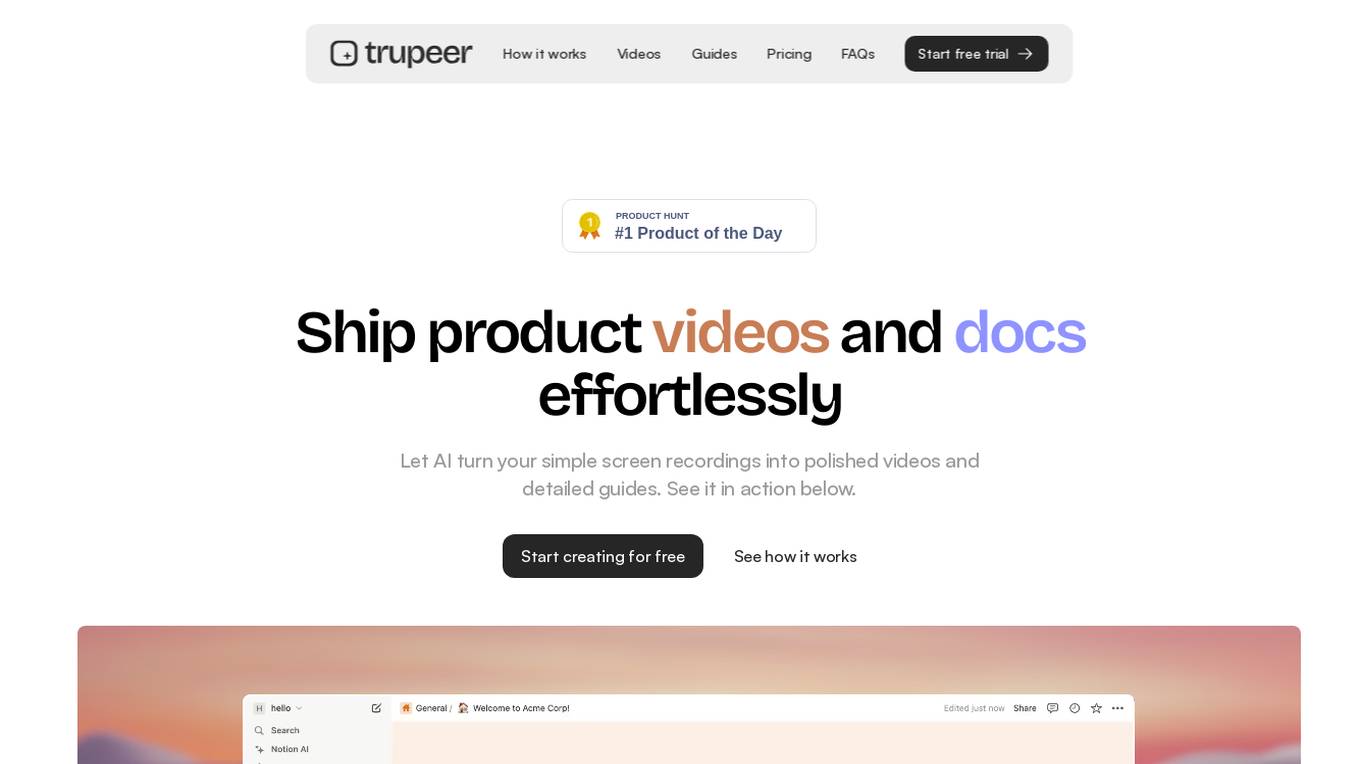
Trupeer
Trupeer is an AI-powered platform that allows users to effortlessly create professional product videos and detailed documentation in minutes. By leveraging AI technology, Trupeer transforms simple screen recordings into polished videos and guides, eliminating the need for prior experience in video editing, technical writing, or graphic design. The platform offers studio-quality product videos with AI voiceovers, automated zoom effects, and cleaned-up grammar. Trupeer is suitable for product marketing, design walkthroughs, learning and development, sales and operations excellence, customer onboarding, and YouTube content creation. Users can easily record with a Chrome extension, edit scripts, select AI voiceovers, wallpapers, and music, and download the content in various formats. Trupeer is designed to save time and effort in creating how-to-guides and offers pricing options for individuals, hobbyists, professionals, and enterprise users.
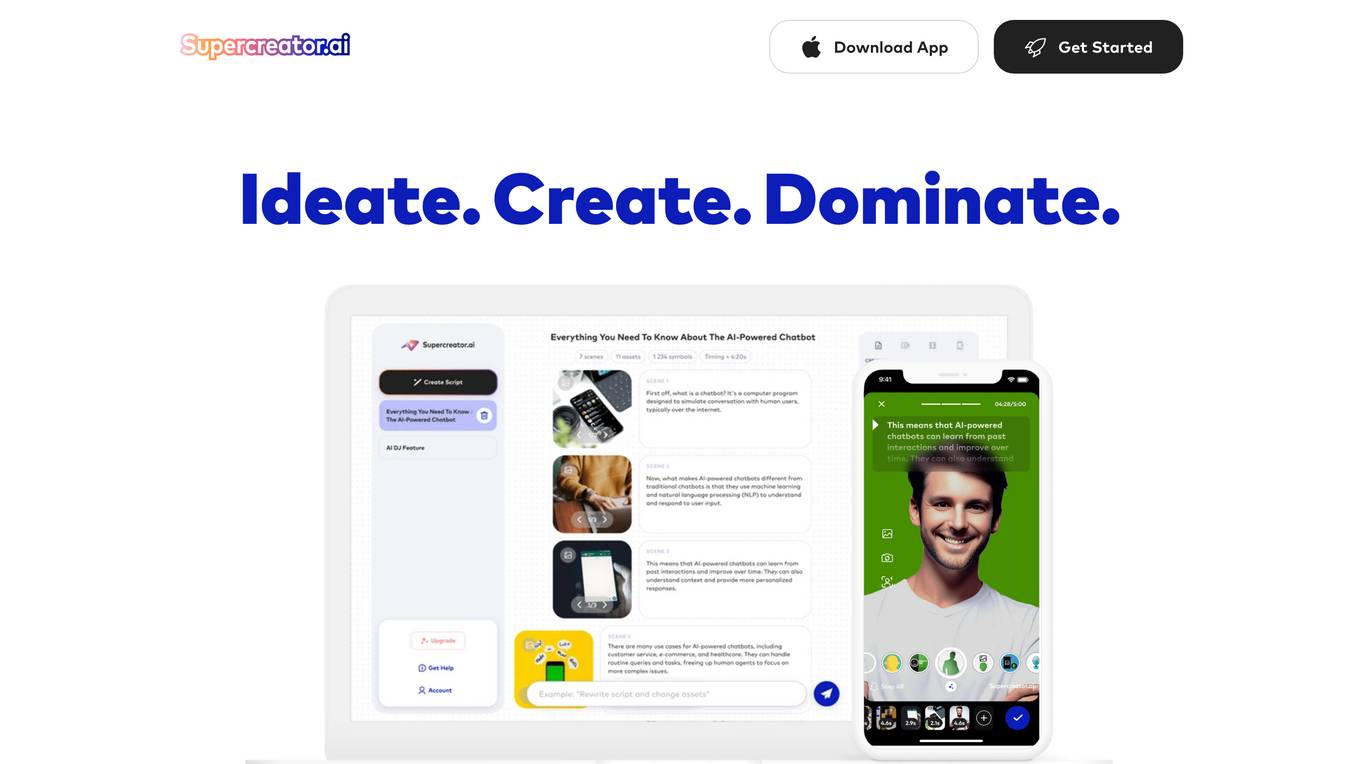
Supercreator
Supercreator is an AI-powered video creation platform that helps users create short-form videos quickly and easily. With a range of features to guide users through every stage of video creation, Supercreator simplifies tasks and makes video creation accessible to everyone. The platform offers features such as converting articles, Twitter threads, and YouTube videos to scripts, as well as providing natural text to script, importing scripts, and creating scripts from scratch. Supercreator also includes advanced editing capabilities such as advanced captions, auto-placement of relevant titles, smart trimming of empty pauses, super editing, adding overlay images and texts, and using fully customizable templates. Additionally, the platform provides a dynamic green screen, AR filters, text-to-filter, voice-controlled camera, HD recording, and audio-only recording options. Supercreator also assists with posting videos by exporting them in various formats to popular platforms and automatically tailoring hashtags, captions, catchy titles, and long posts to improve algorithm performance.
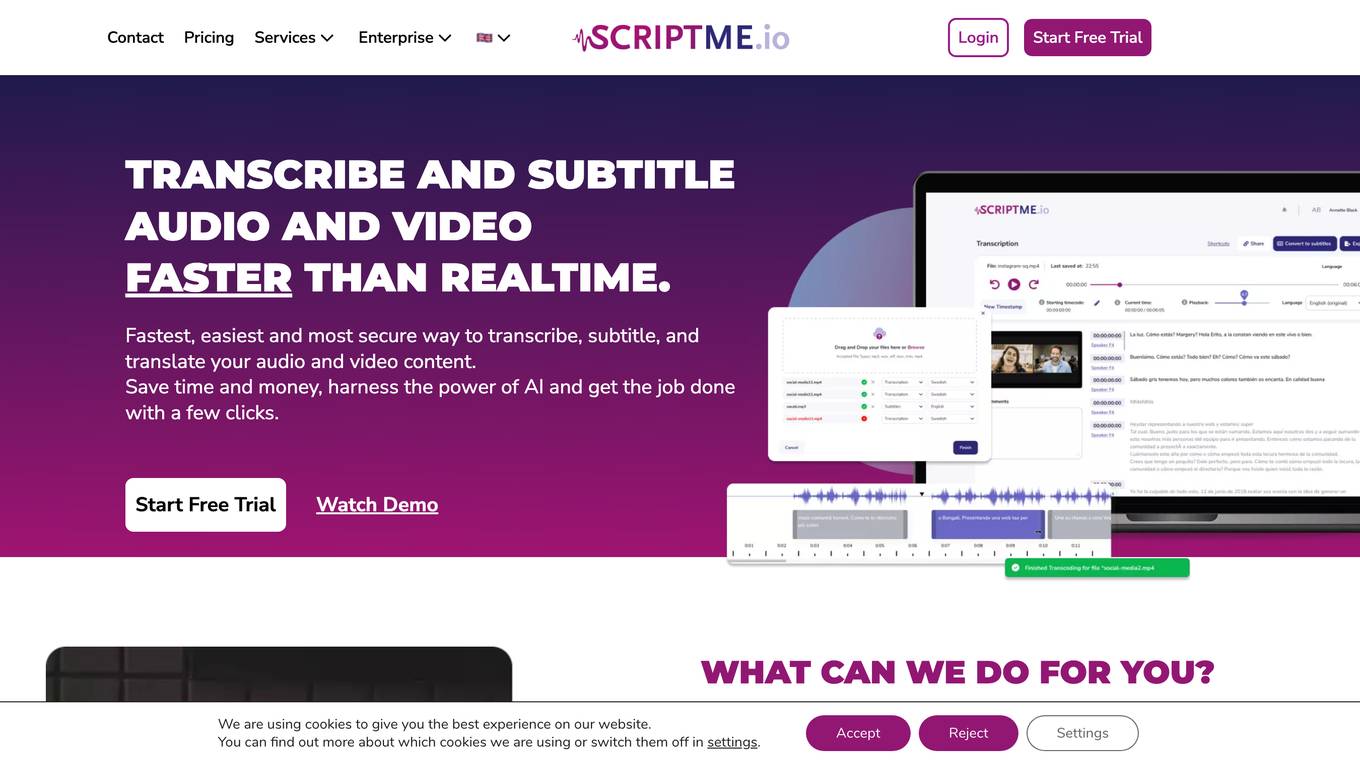
ScriptMe
ScriptMe is a web-based platform that provides automated transcription and subtitling services. It uses artificial intelligence (AI) to convert audio and video files into text, and then allows users to edit and export the transcripts in a variety of formats. ScriptMe is designed to be fast, accurate, and easy to use, and it can be used for a variety of purposes, including: * Transcribing interviews, lectures, and meetings * Creating subtitles for videos * Generating transcripts for podcasts and webinars * Providing closed captions for videos * Translating audio and video files into different languages
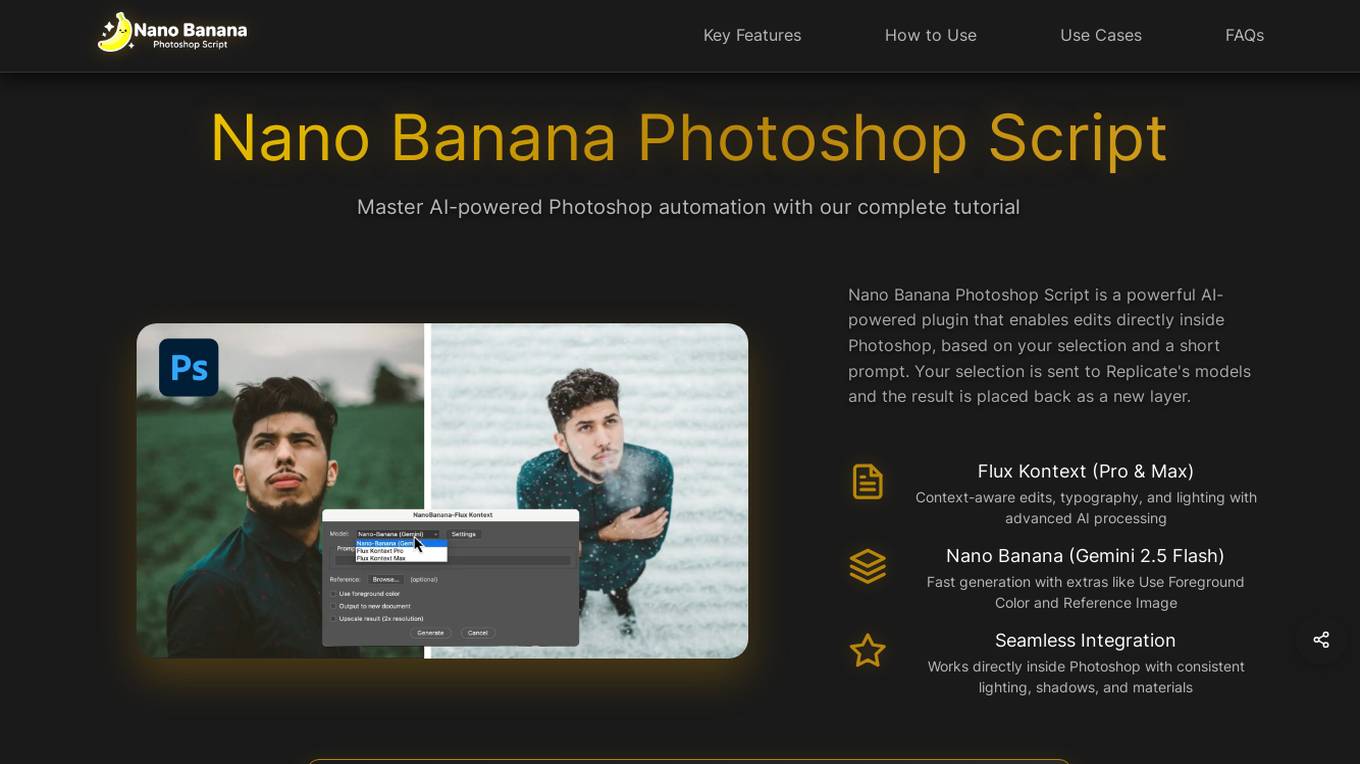
Nano Banana Photoshop Script
Nano Banana Photoshop Script is an AI-powered plugin that integrates seamlessly with Adobe Photoshop, enabling users to automate complex editing tasks, enhance images, and streamline creative workflows with intelligent prompts and AI model integration. The script utilizes advanced AI models like Flux Kontext and Nano Banana to analyze image selections and apply intelligent enhancements, providing rapid image generation and editing with professional results in seconds. Users can access both Flux Kontext and Nano Banana models for context-aware edits, typography, and advanced image processing, all within the native Photoshop interface. The tool supports batch processing, customization of automation settings, and export in various image formats, making it ideal for photographers, designers, and creative professionals seeking efficient and high-quality image editing solutions.
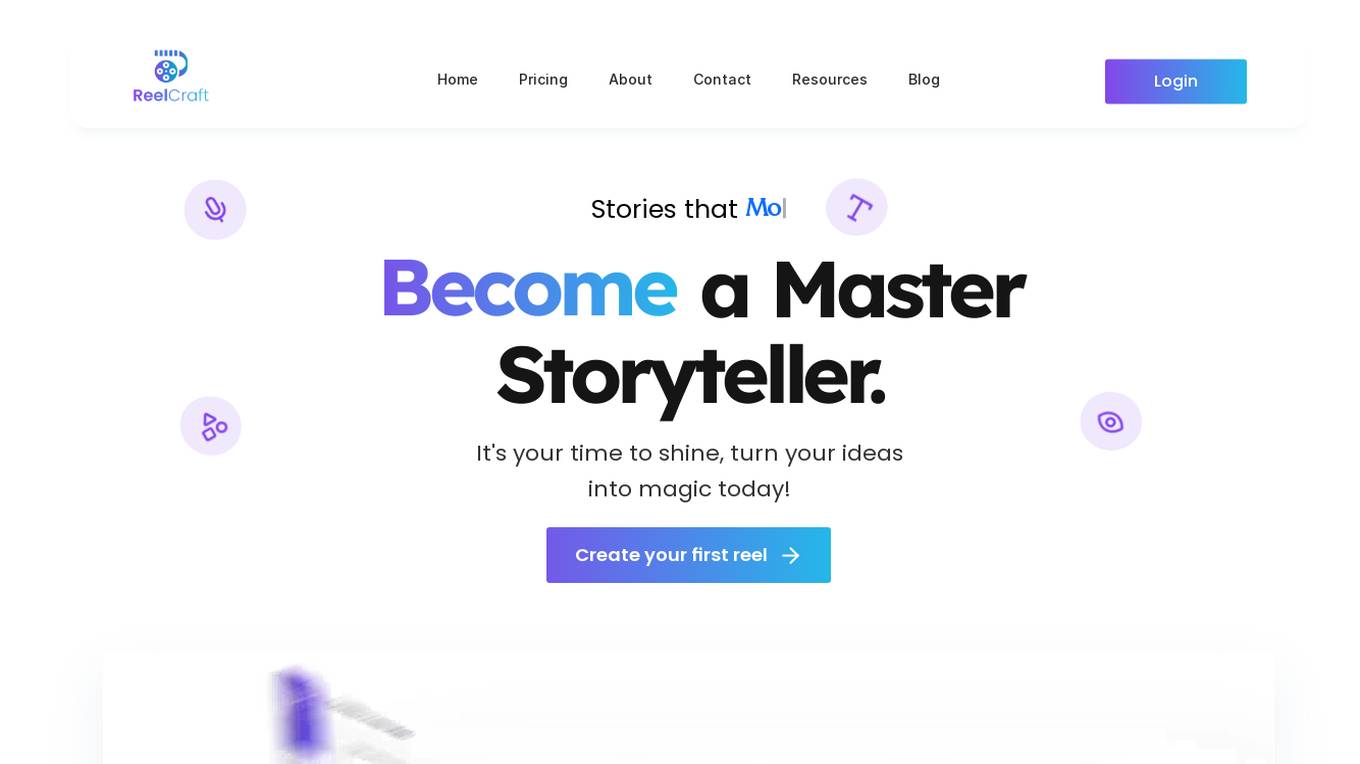
ReelCraft
ReelCraft is an AI-powered platform that enables users to effortlessly transform their ideas into captivating animated stories. With features like AI-powered scriptwriting, automatic scene planning, diverse artistic styles, voiceovers, and soundscapes, ReelCraft empowers content creators, educators, and marketers to create professional-quality videos with ease. The platform offers an intuitive user interface, seamless animation creation, and continuous updates to enhance the storytelling experience. ReelCraft is designed to cater to a wide range of users, from beginners to professionals, providing tools for script generation, scene customization, animation creation, and exporting in multiple formats.
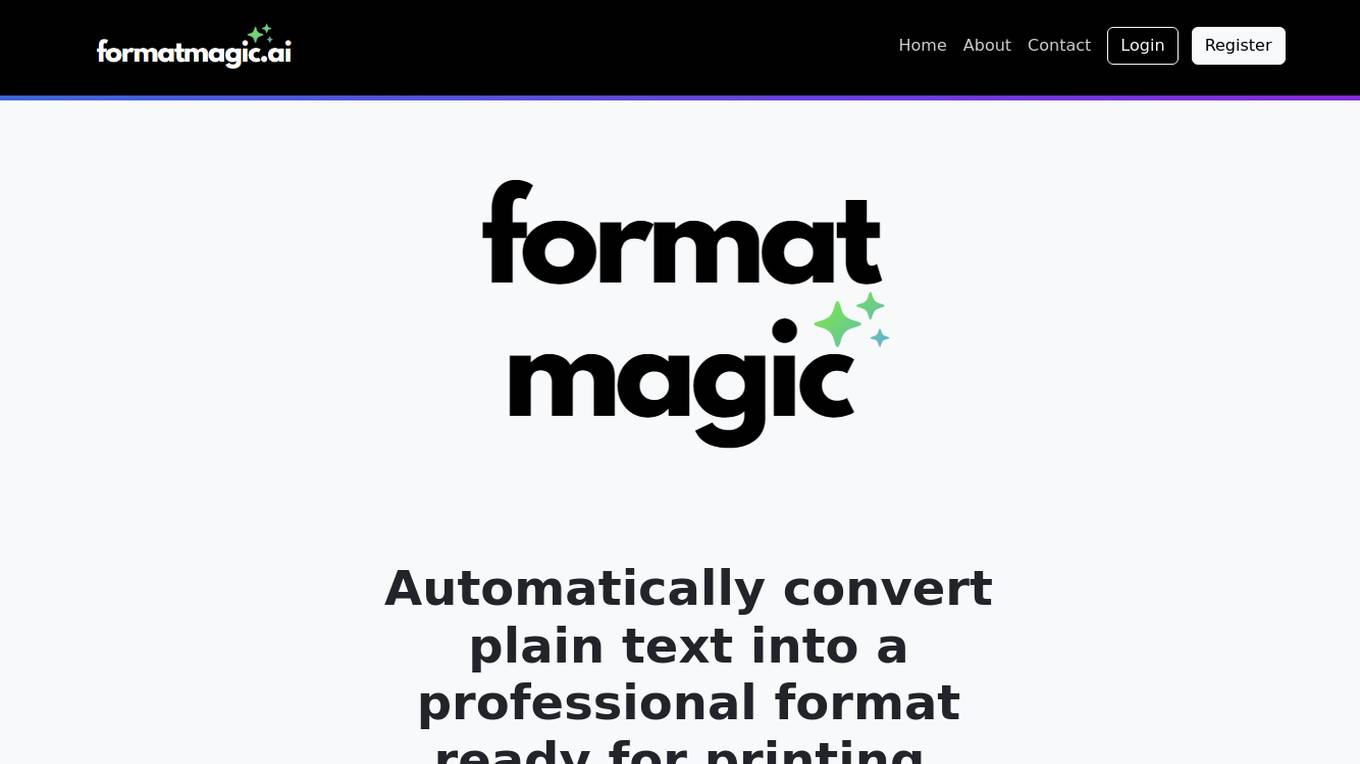
Format Magic
Format Magic is a one-click formatting platform powered by AI that transforms plain text into beautifully formatted documents within seconds. Users can select a template, paste their text, and let the AI automatically apply headings and styles to create professional resumes or documents effortlessly. The platform offers easy-to-use tools for quick and efficient formatting, making it a valuable resource for individuals looking to enhance the visual appeal of their written content.
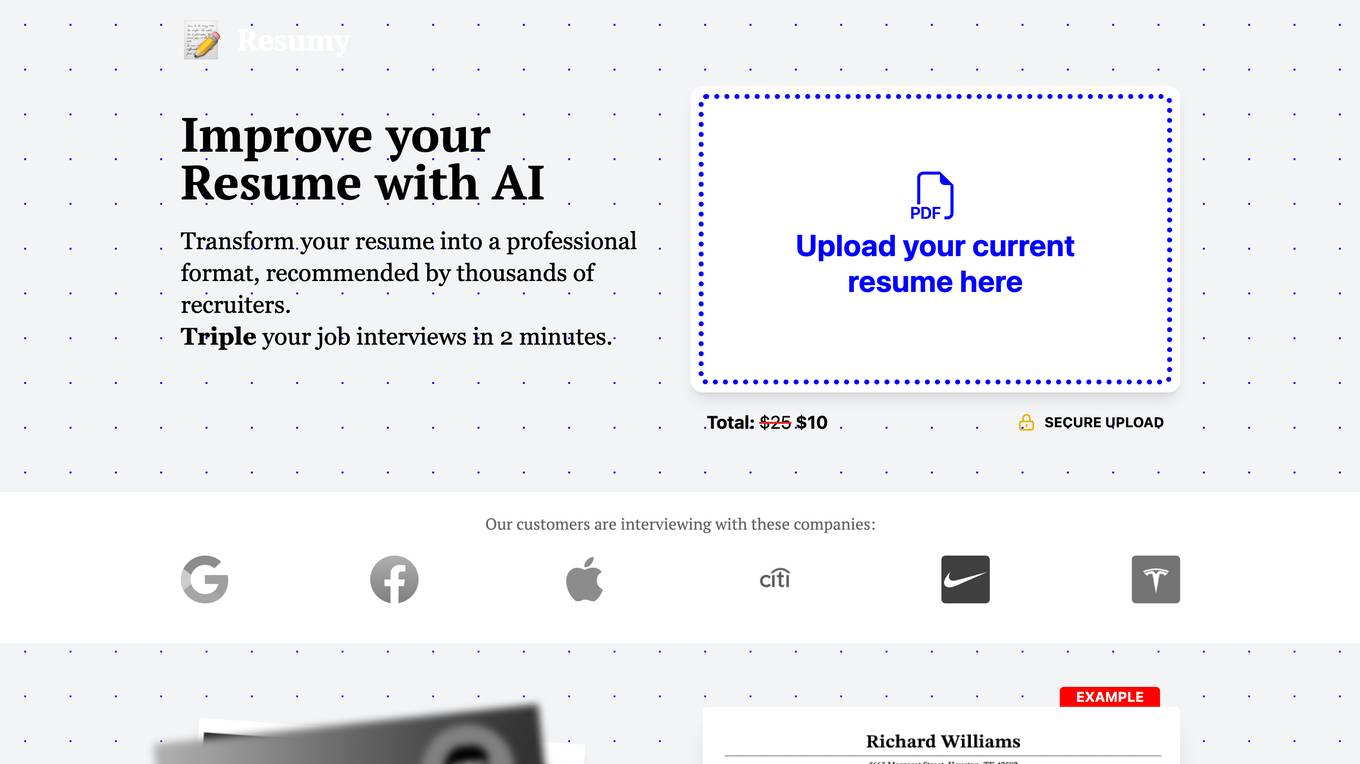
Resumy
Resumy is an AI-powered resume builder that uses OpenAI's GPT-4 natural language processing model to generate polished and effective resumes. It analyzes a user's work experience, skills, and achievements to create a professional-looking resume in minutes. Resumy also offers proven templates and personalized help from resume writing experts.
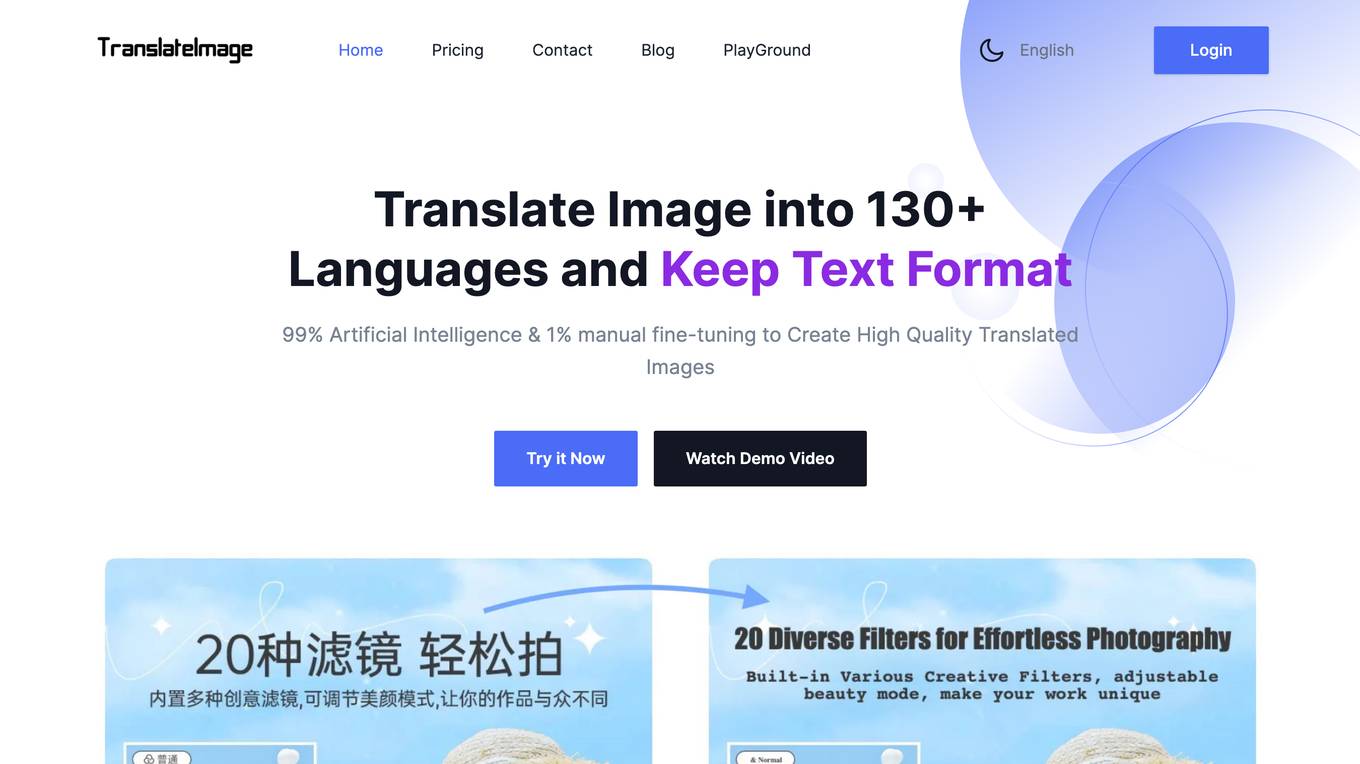
AI Image Translator
AI Image Translator is an advanced tool that utilizes AI-powered OCR technology to translate images while retaining original text formats. It supports over 130 languages and offers features such as format preservation, background restoration, multi-language translation, intelligent text placement, and high-quality image export. The tool is ideal for tasks like e-commerce product image translation, app and software screenshot translation, marketing and advertisement translation, technical document translation, and educational content translation.
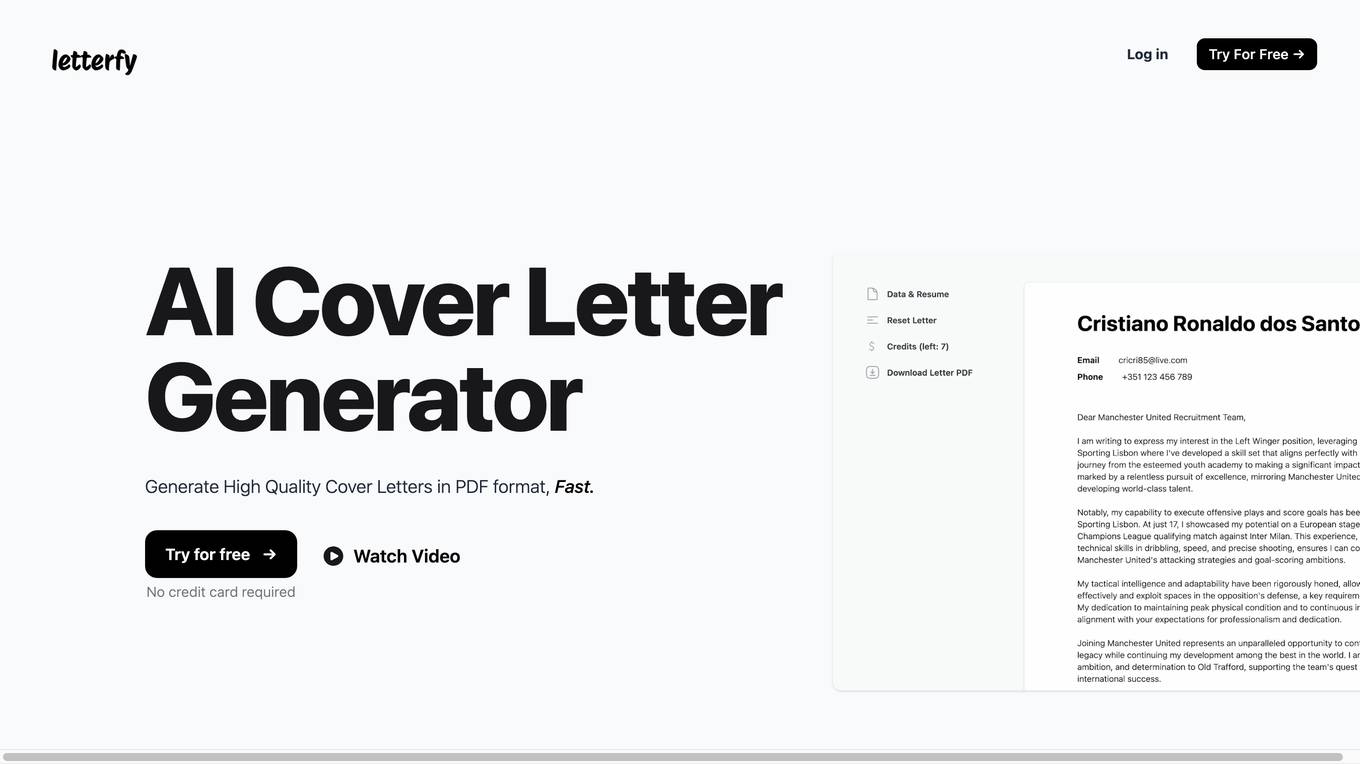
Letterfy
Letterfy is an AI-powered cover letter generator that helps job seekers create high-quality cover letters quickly and easily. With Letterfy, you can generate a professional cover letter in minutes, tailored to the specific job you're applying for. Letterfy's AI technology analyzes your resume and LinkedIn profile to identify your skills and experience, and then generates a cover letter that highlights your most relevant qualifications. You can also customize your cover letter with your own personal touch, and download it in PDF format.
0 - Open Source AI Tools
20 - OpenAI Gpts
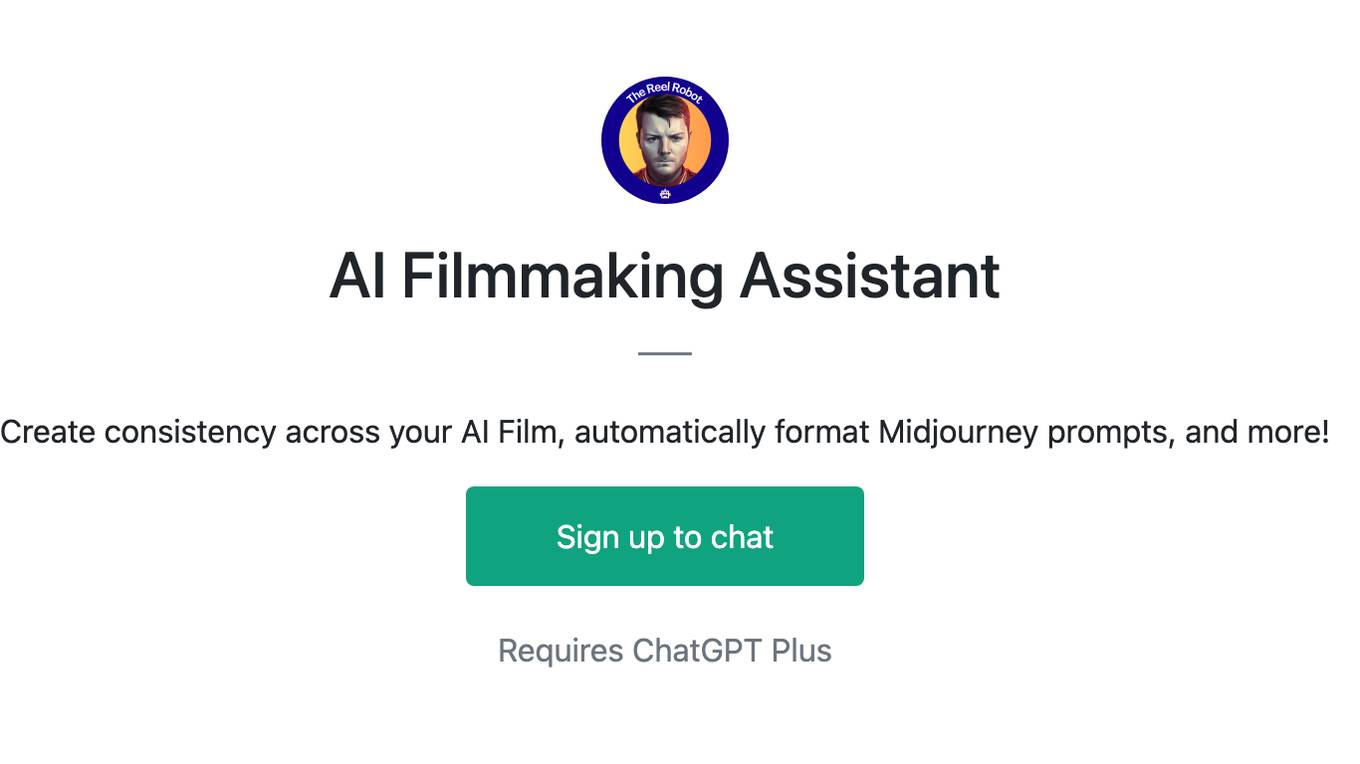
AI Filmmaking Assistant
Create consistency across your AI Film, automatically format Midjourney prompts, and more!
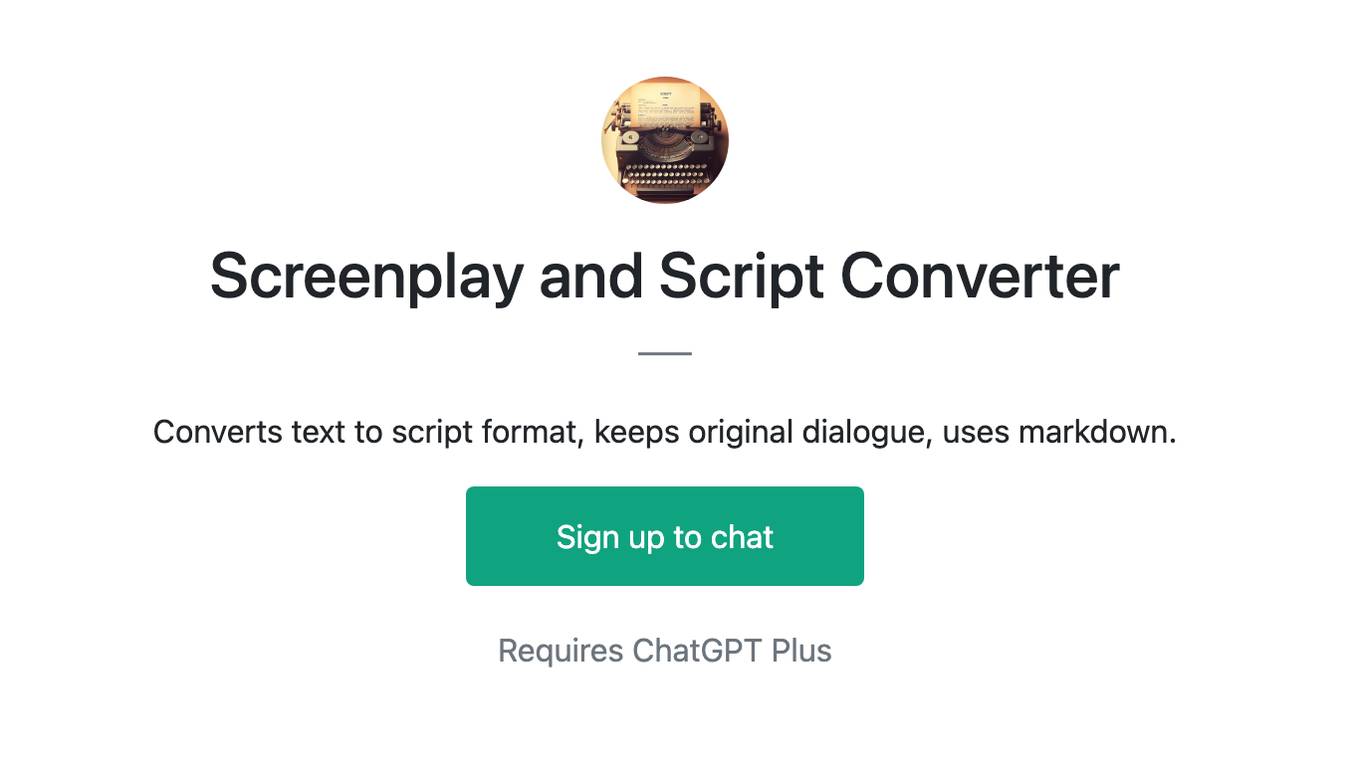
Screenplay and Script Converter
Converts text to script format, keeps original dialogue, uses markdown.
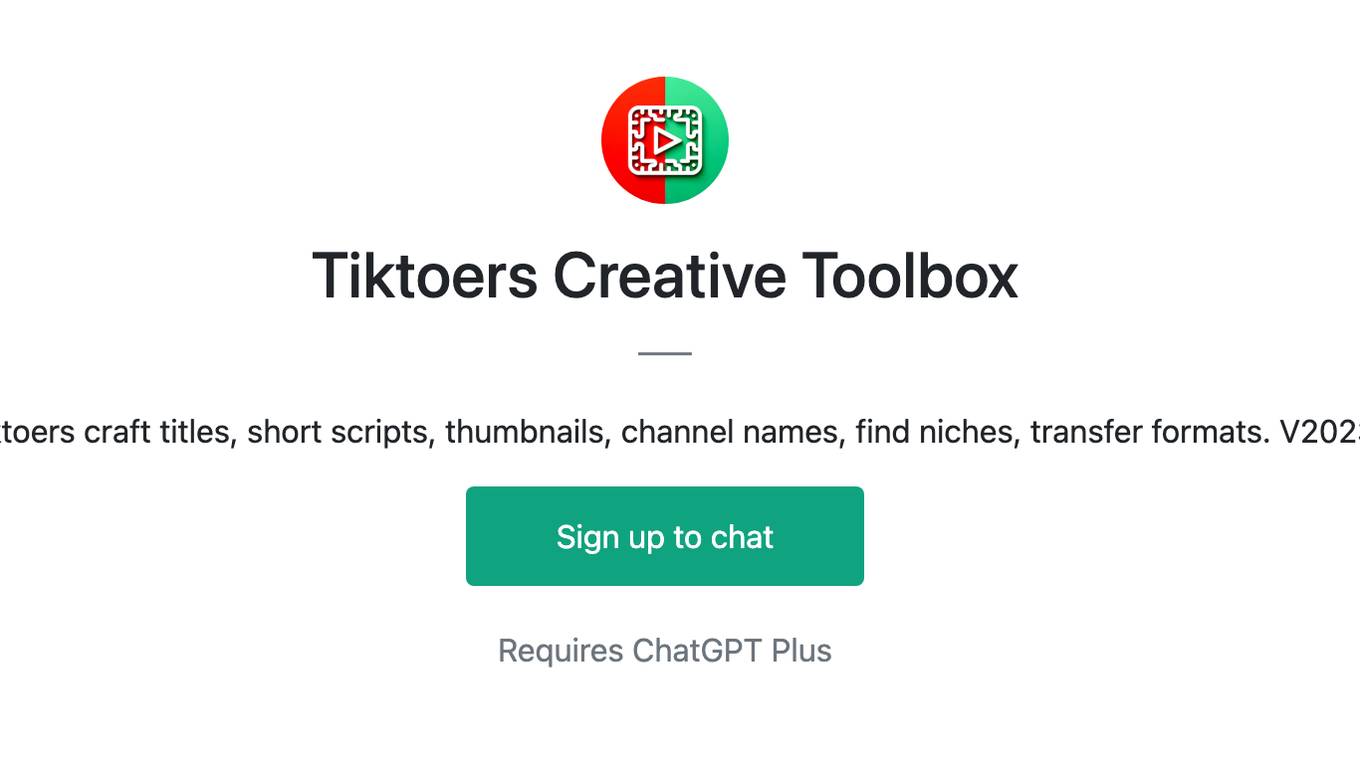
Tiktoers Creative Toolbox
Help tiktoers craft titles, short scripts, thumbnails, channel names, find niches, transfer formats. V20231118
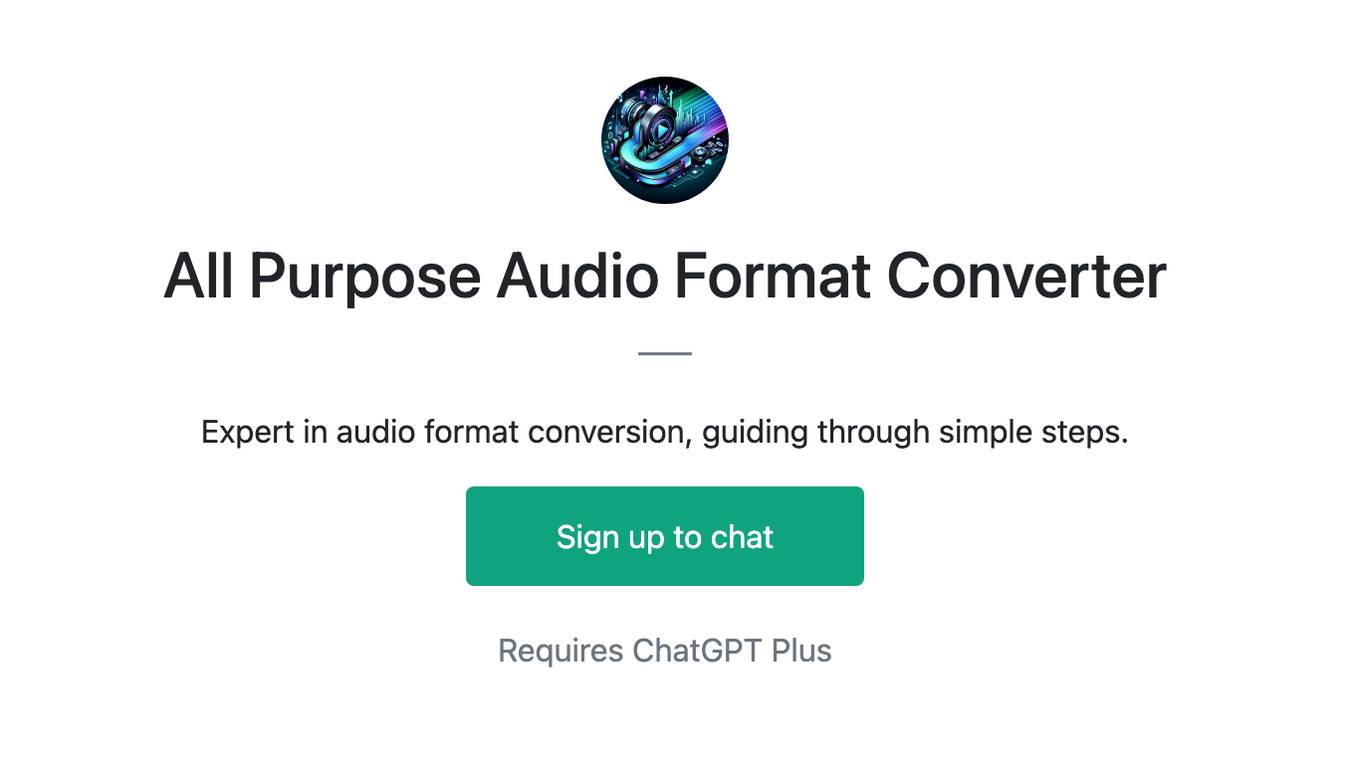
All Purpose Audio Format Converter
Expert in audio format conversion, guiding through simple steps.
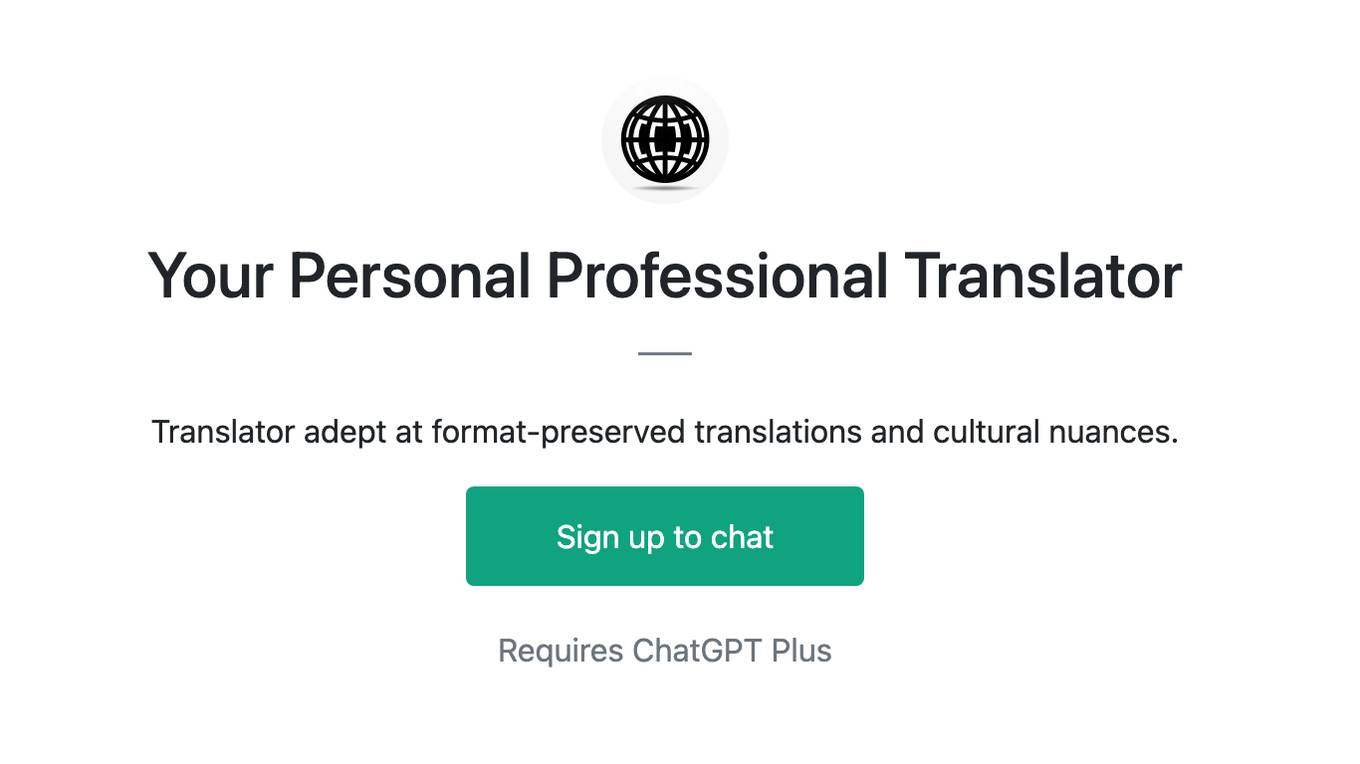
Your Personal Professional Translator
Translator adept at format-preserved translations and cultural nuances.
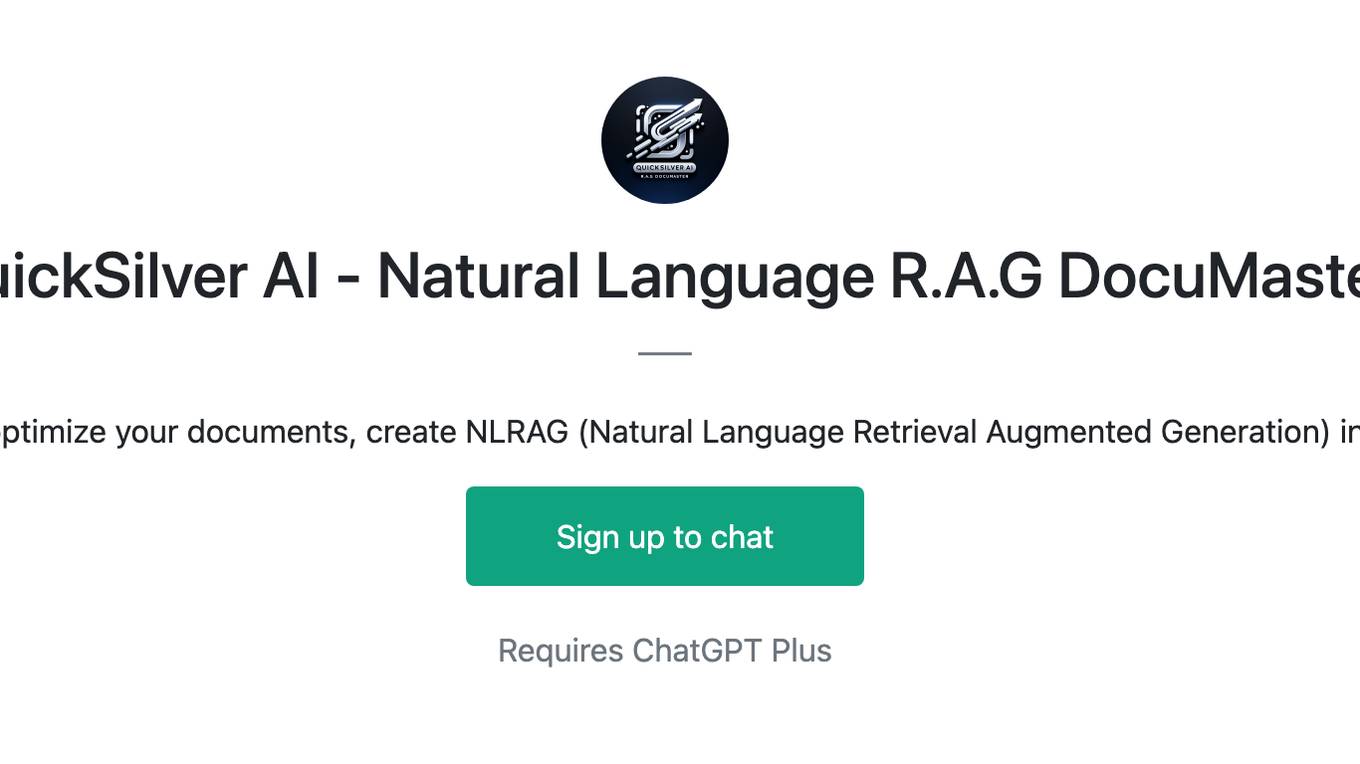
QuickSilver AI - Natural Language R.A.G DocuMaster
Easily format and optimize your documents, create NLRAG (Natural Language Retrieval Augmented Generation) indexes and more!
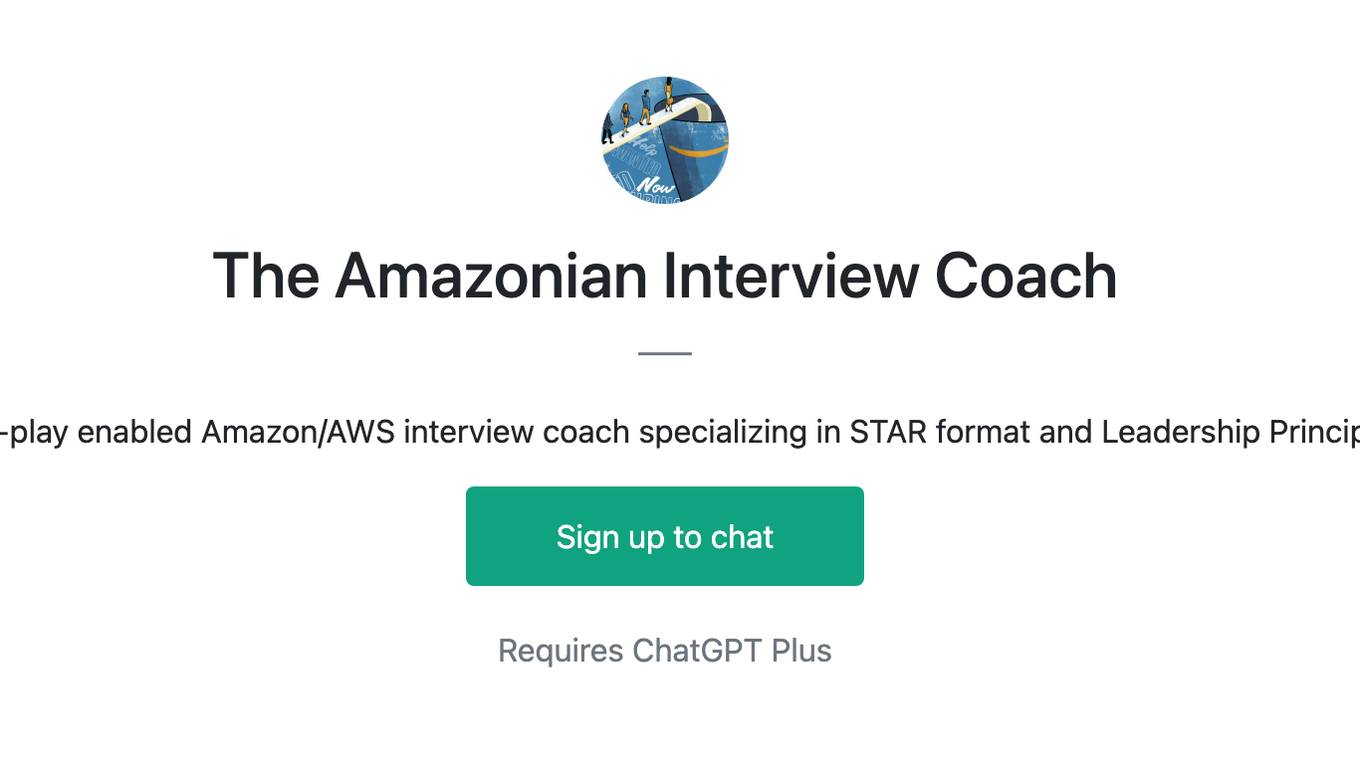
The Amazonian Interview Coach
A role-play enabled Amazon/AWS interview coach specializing in STAR format and Leadership Principles.
